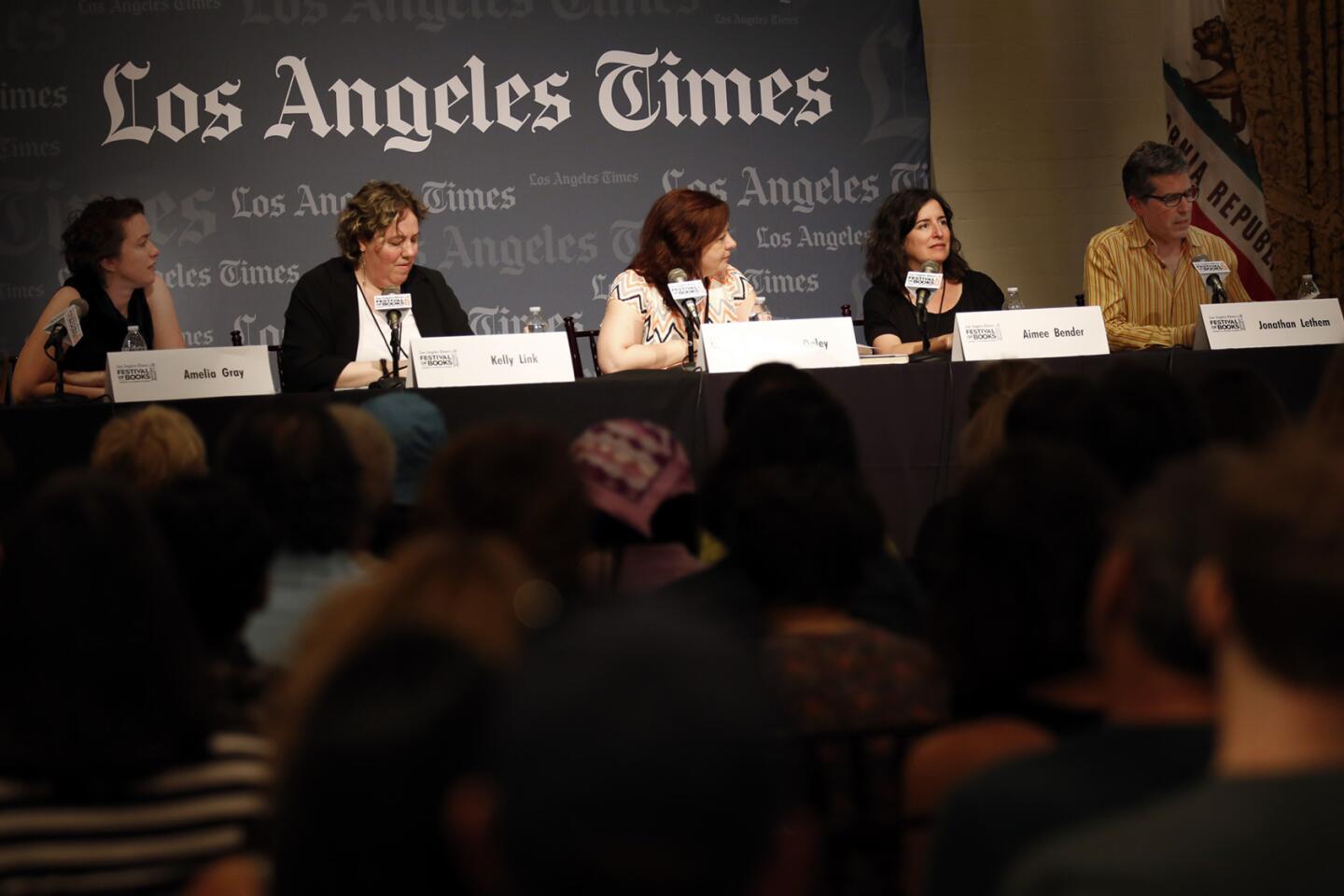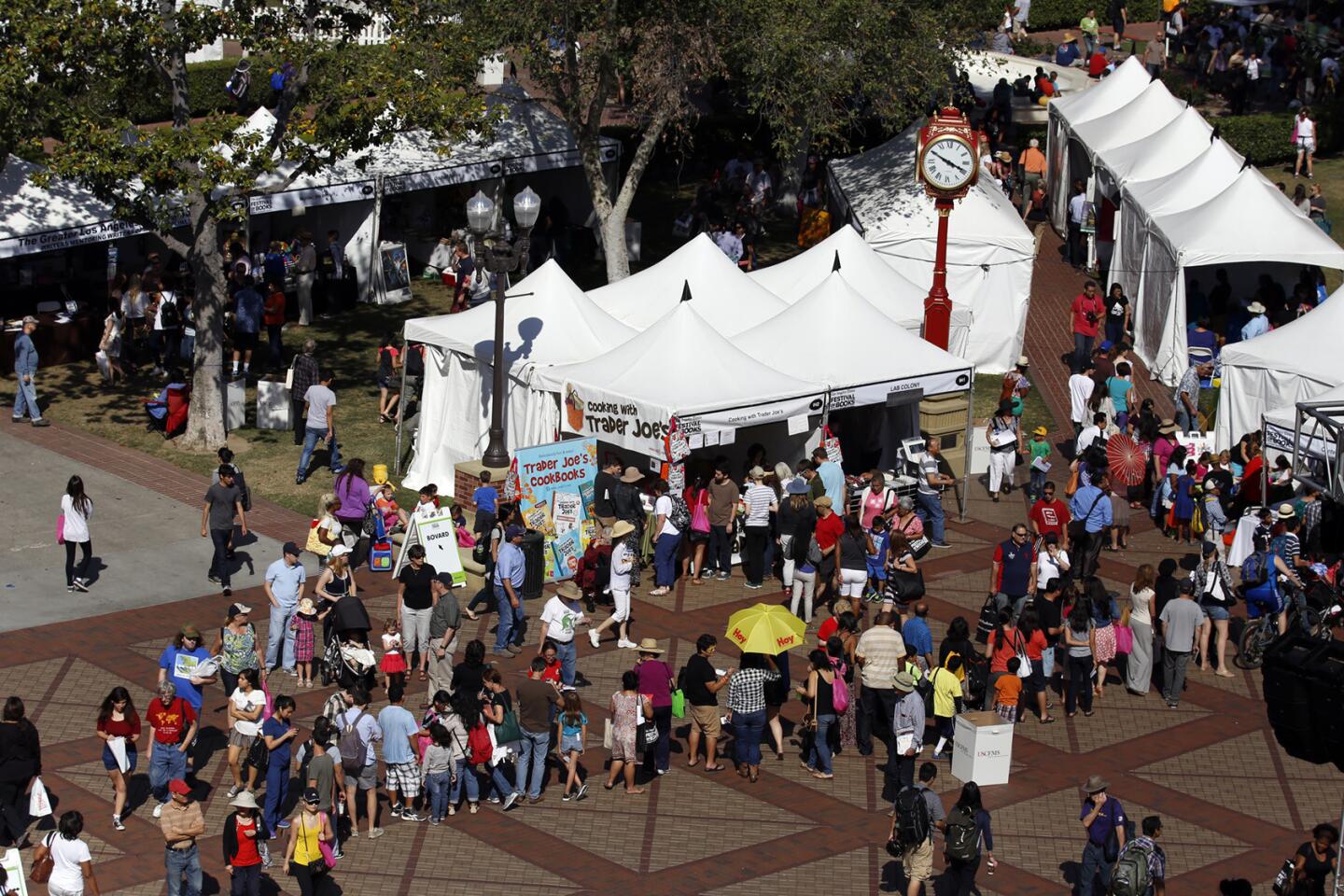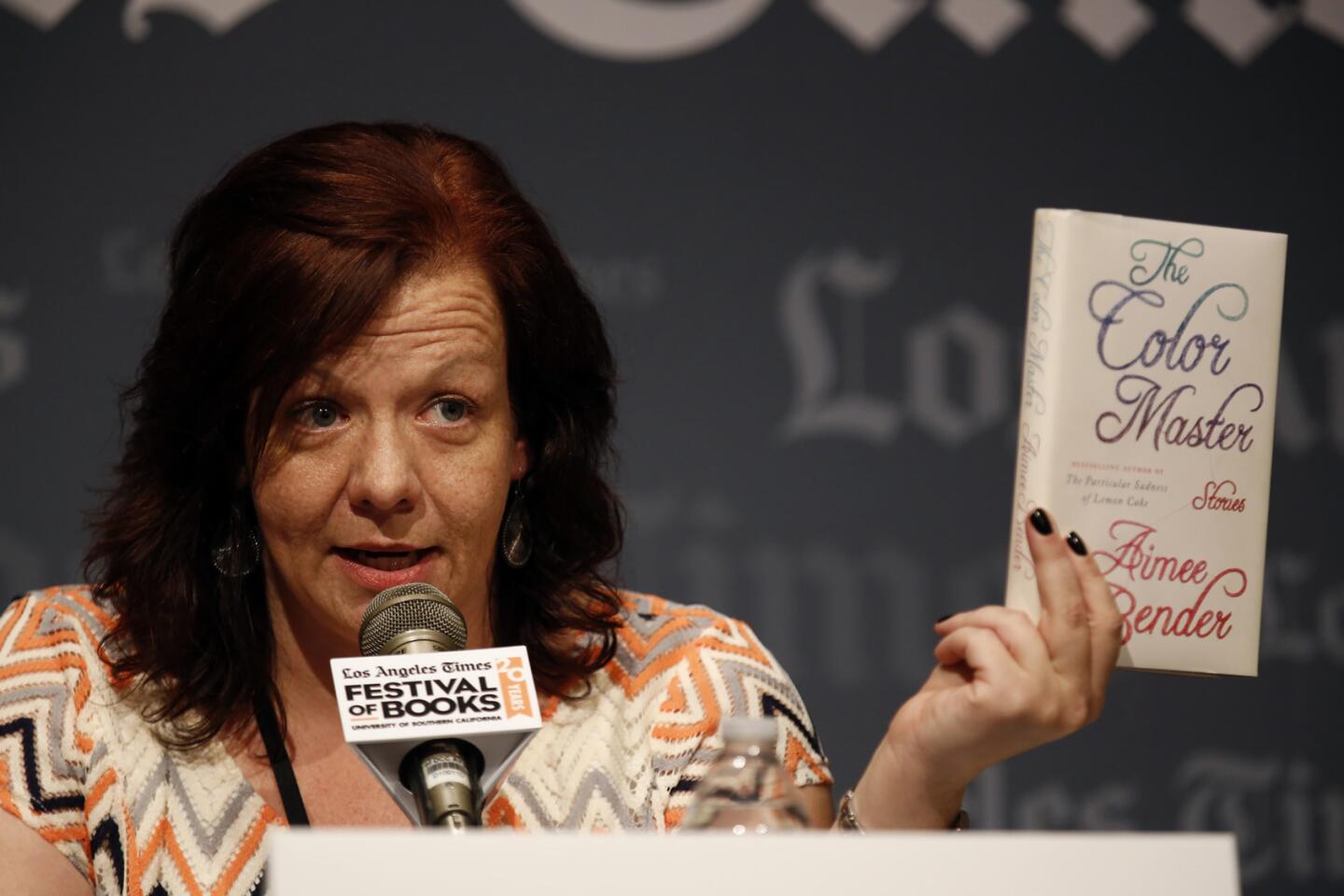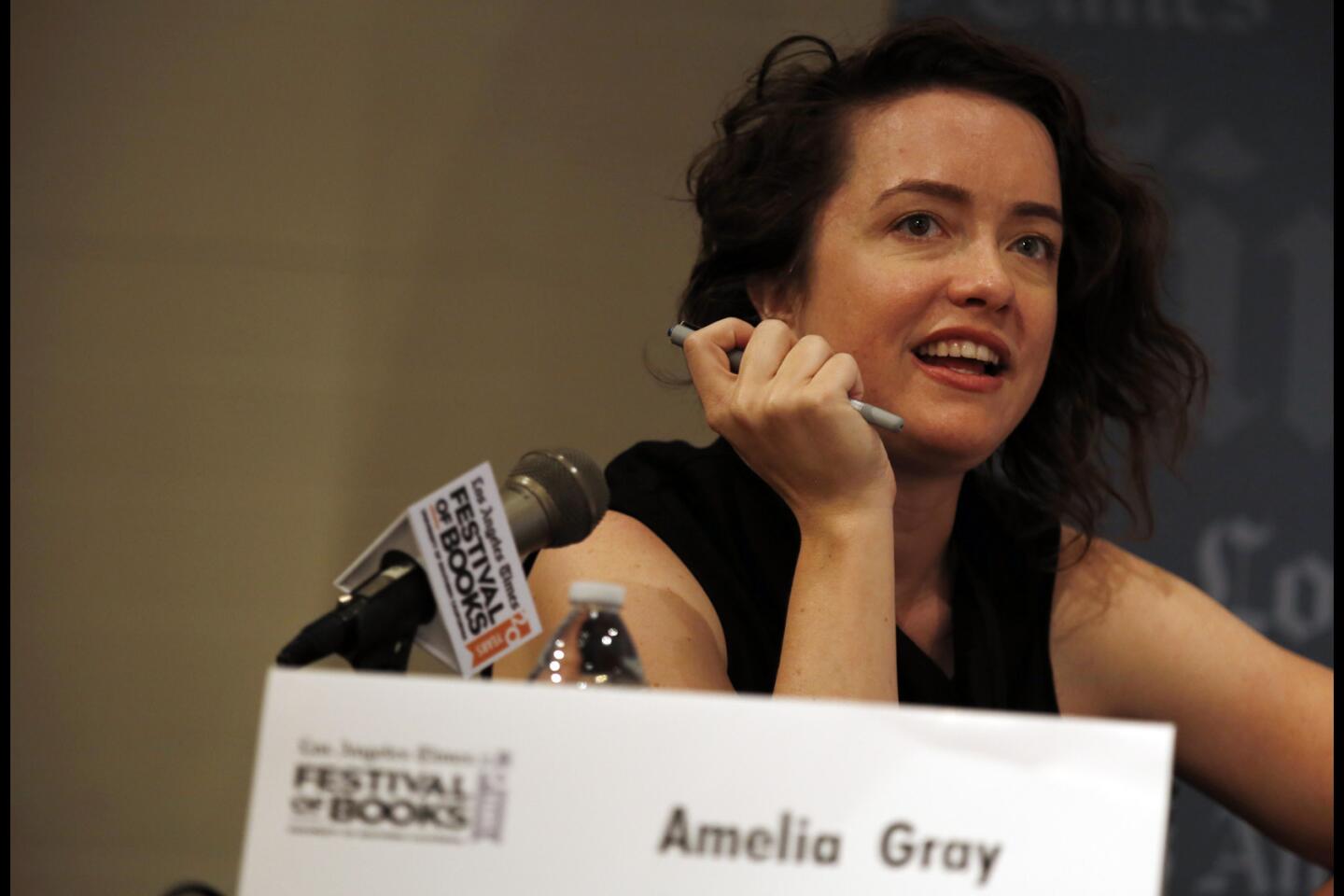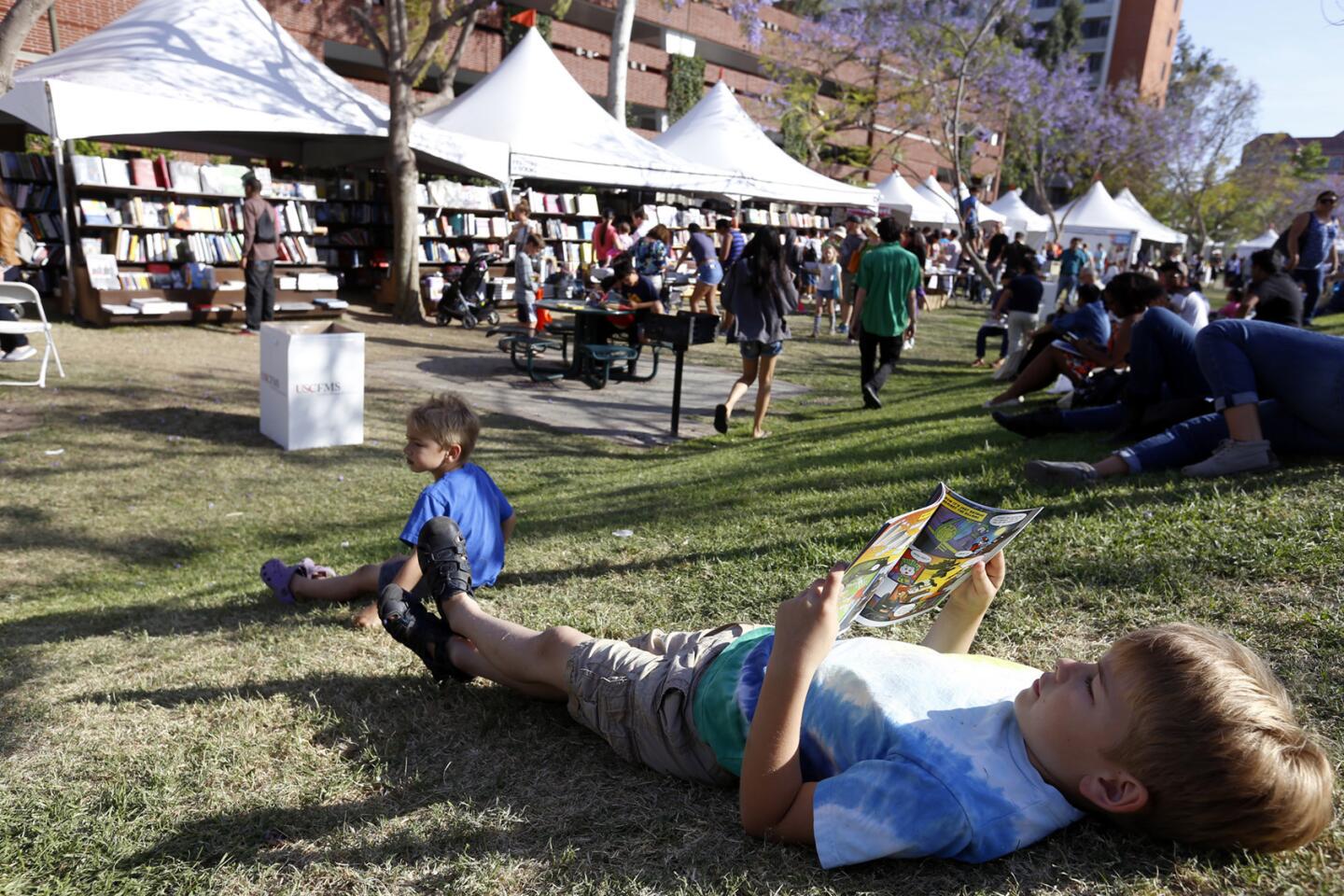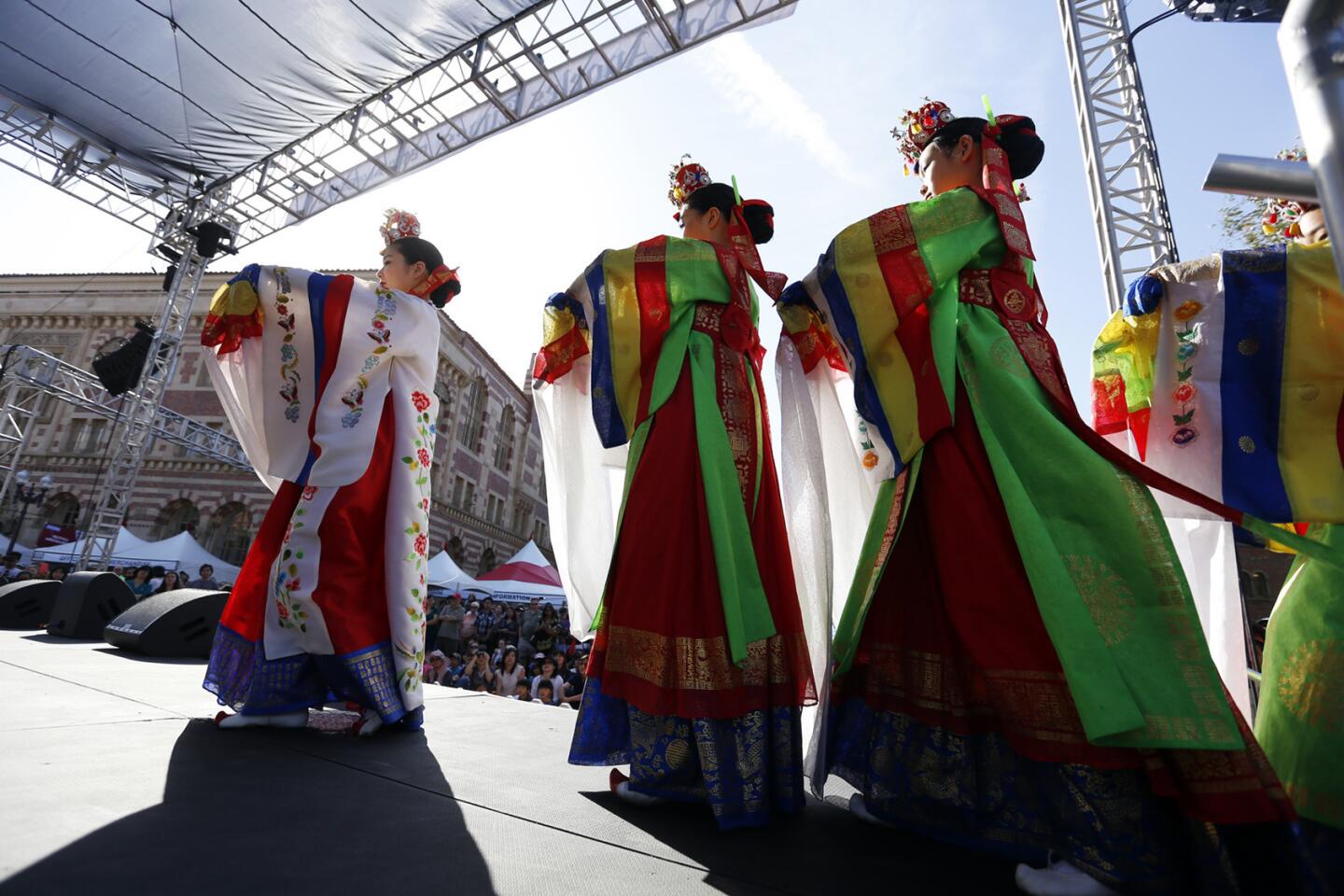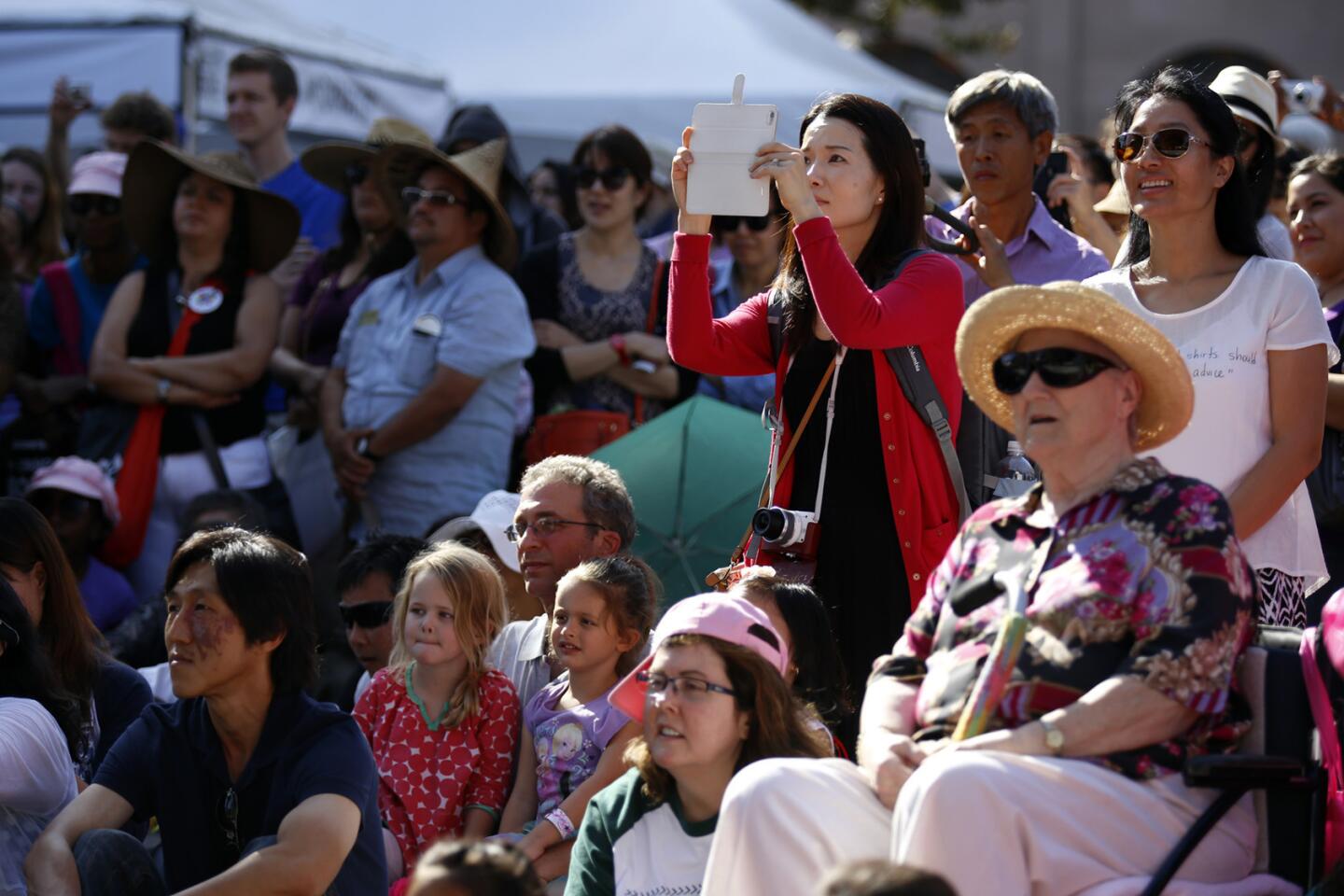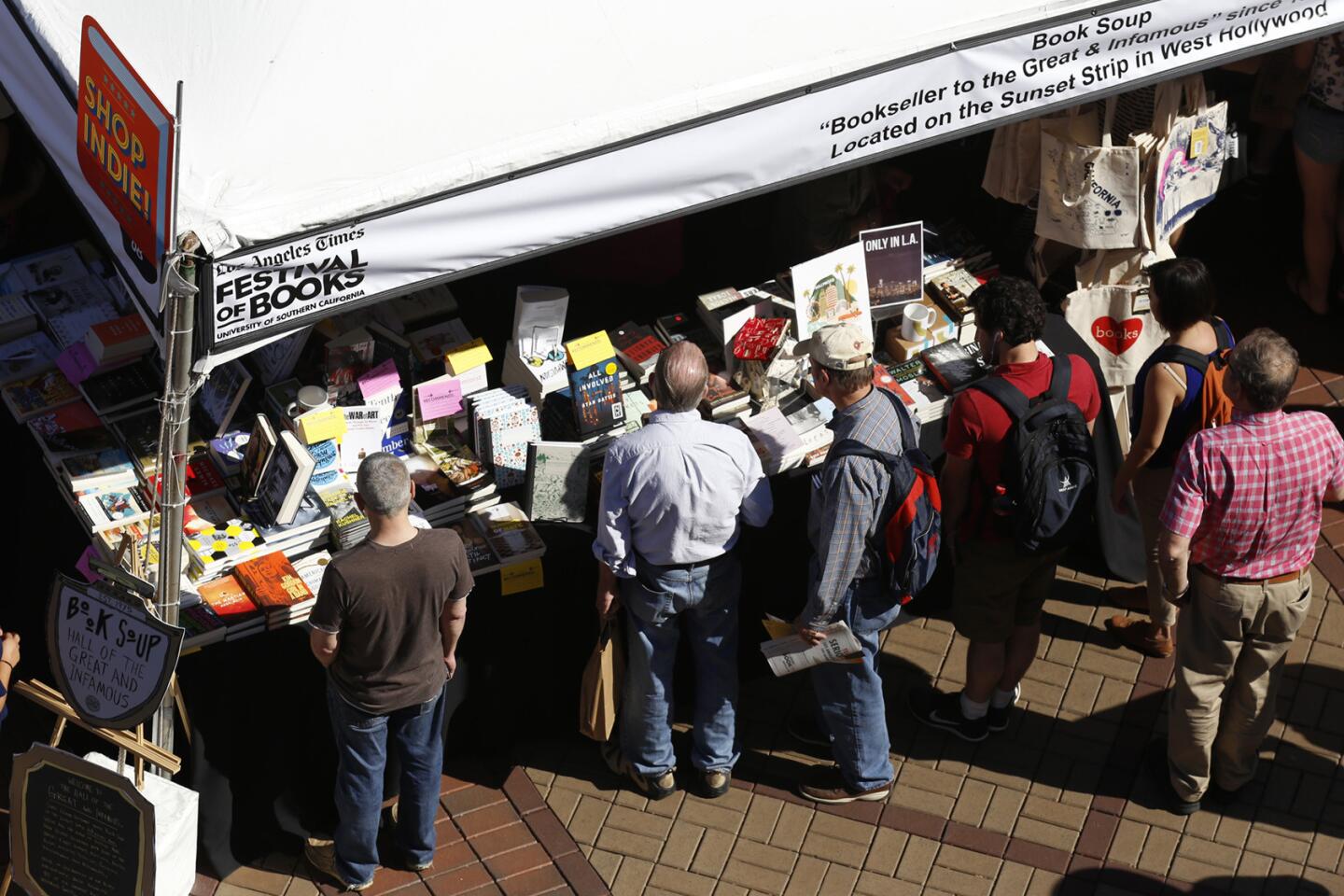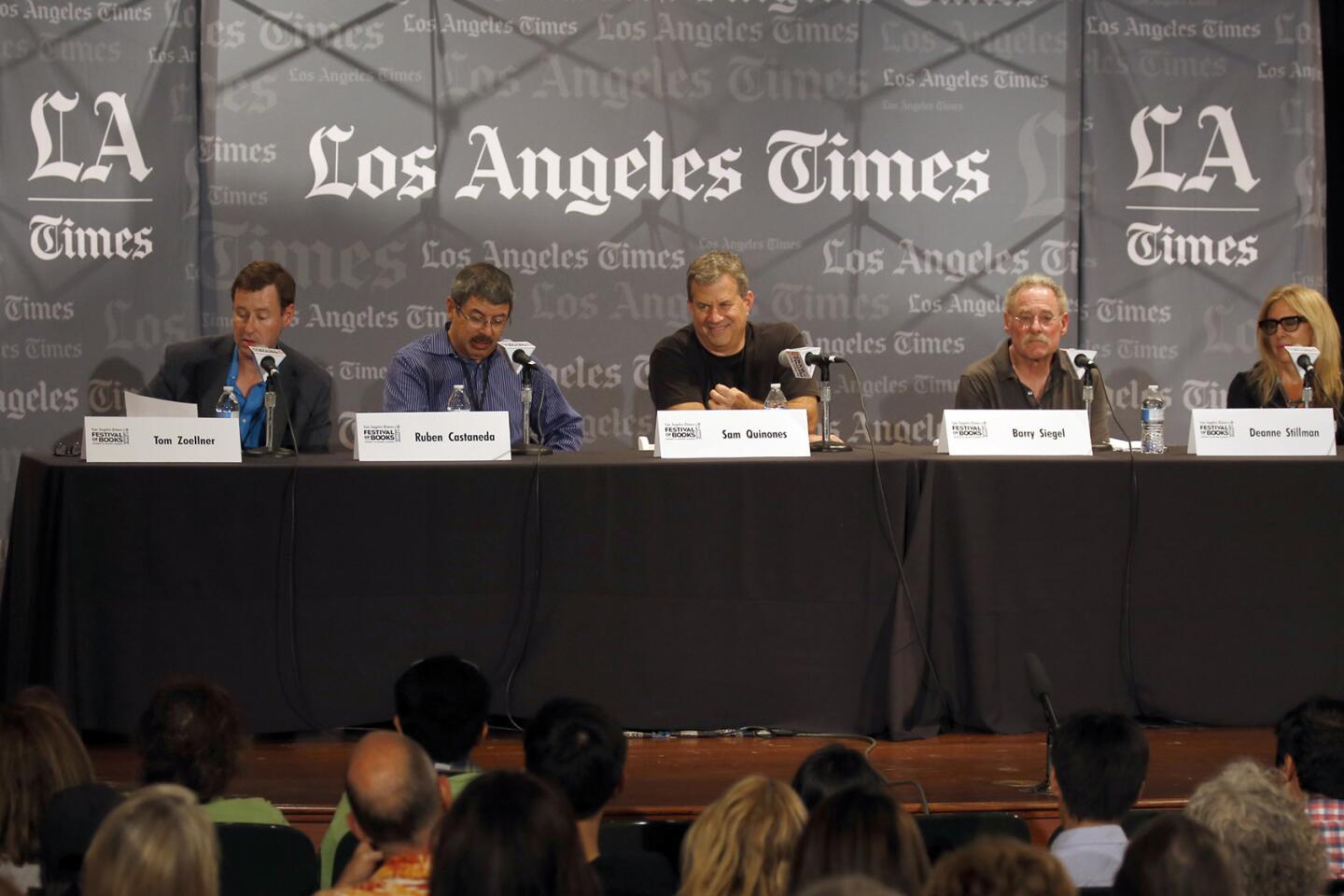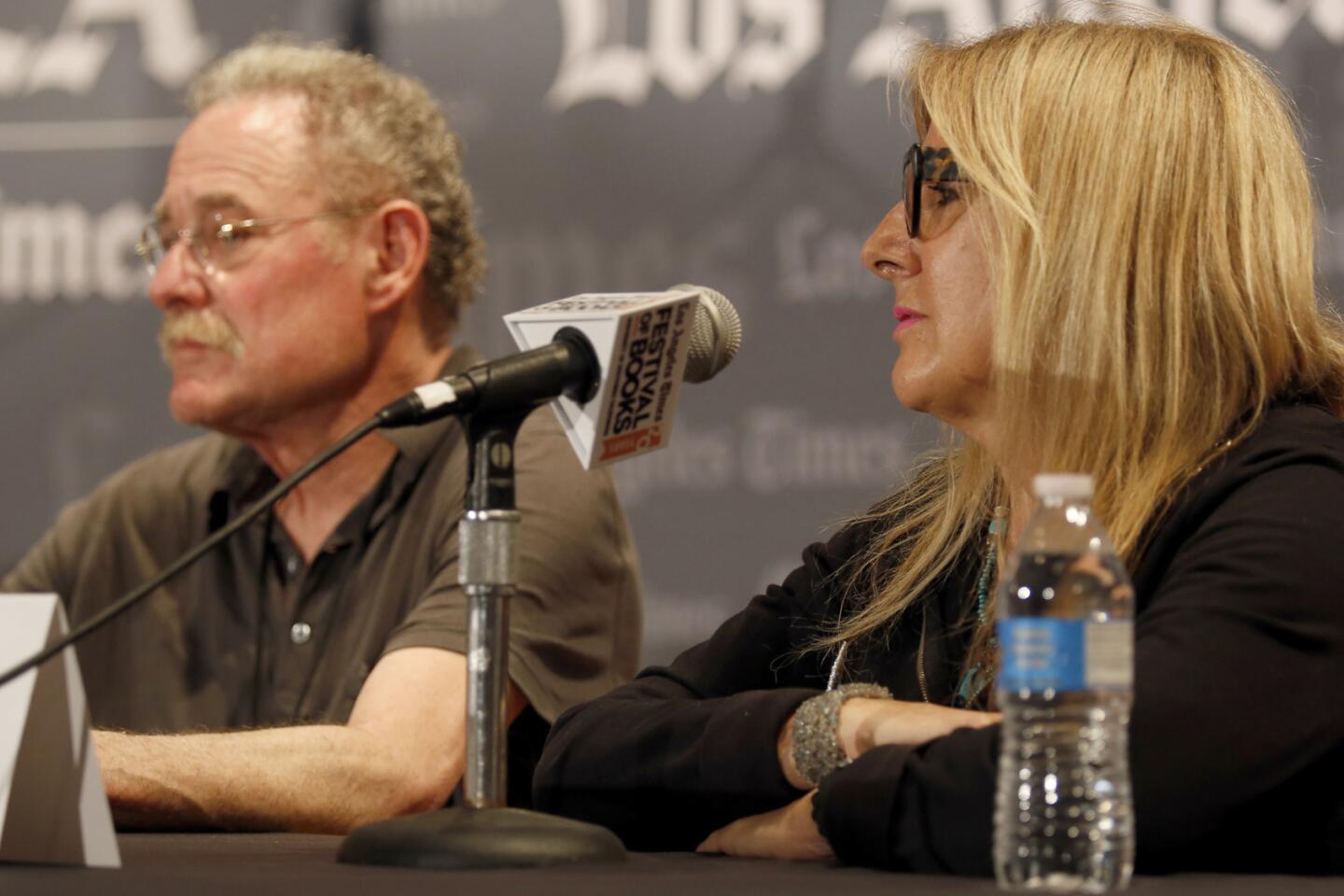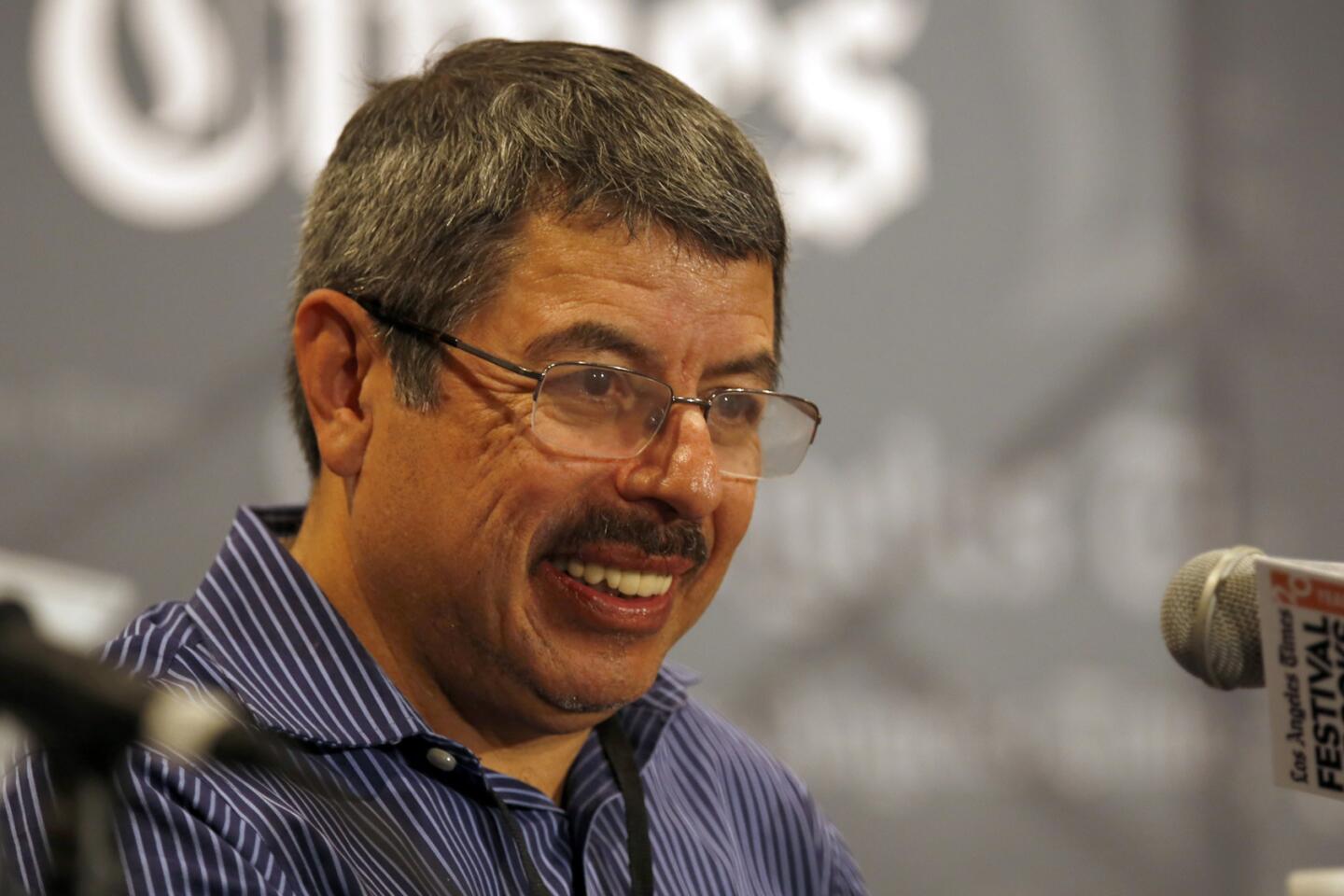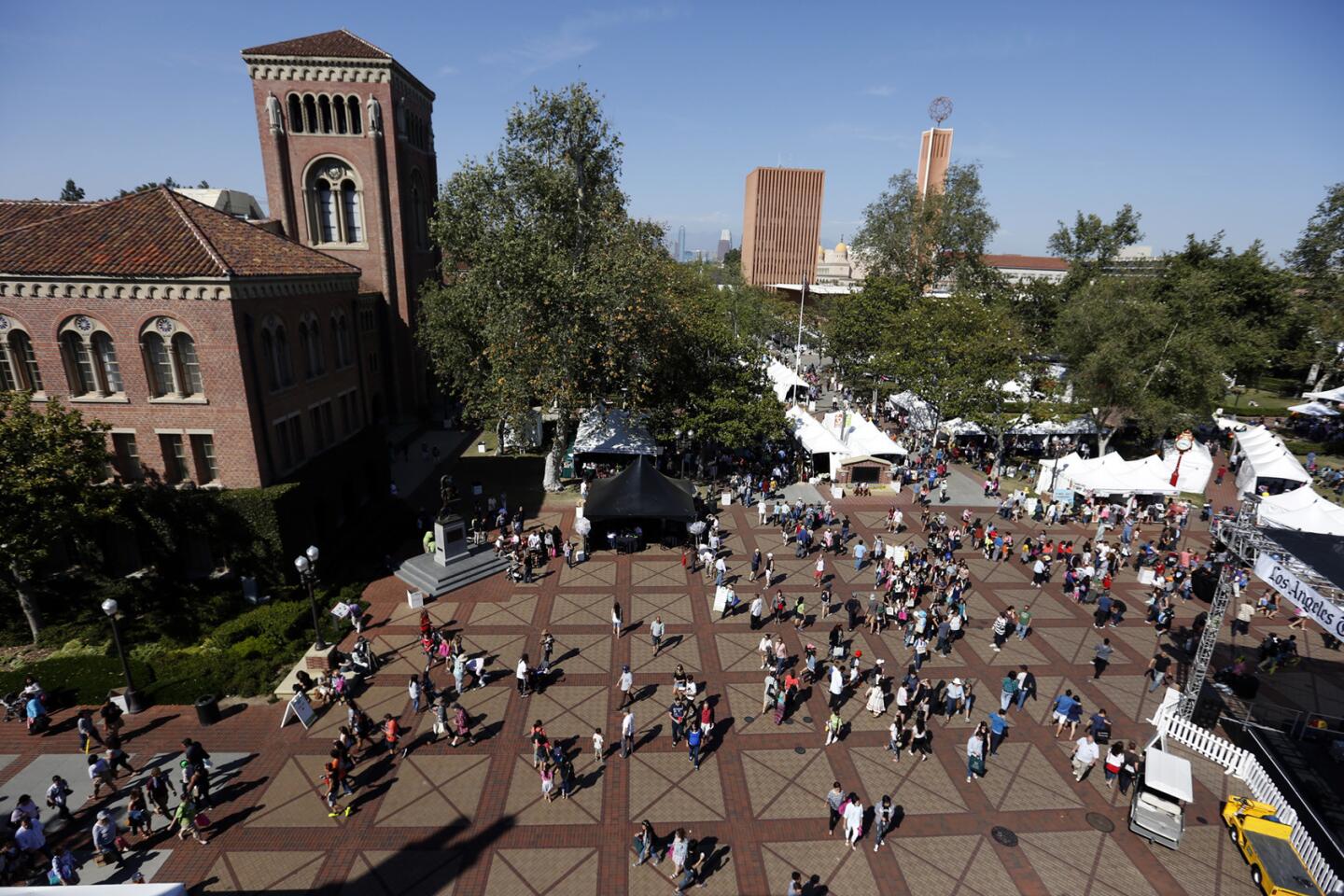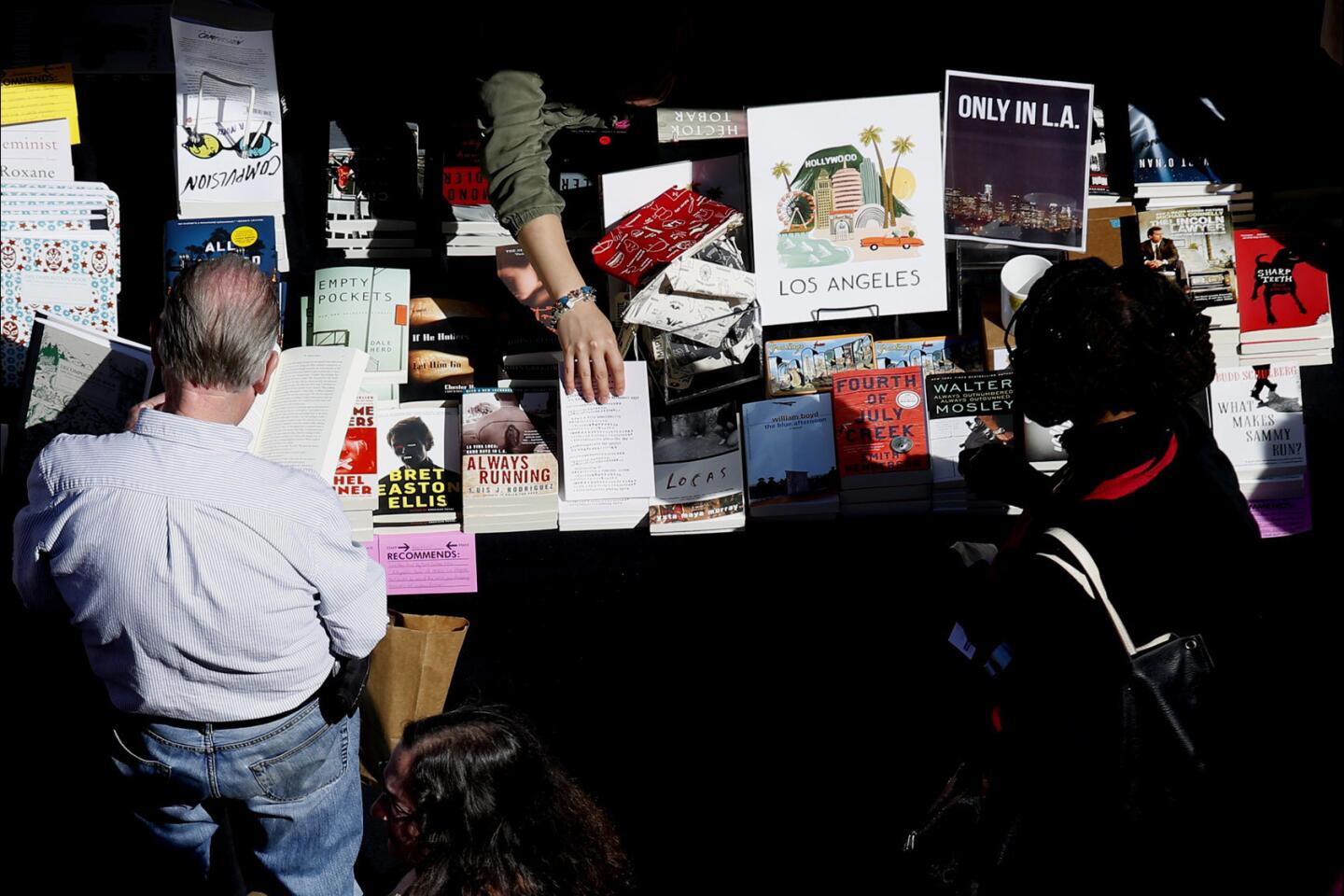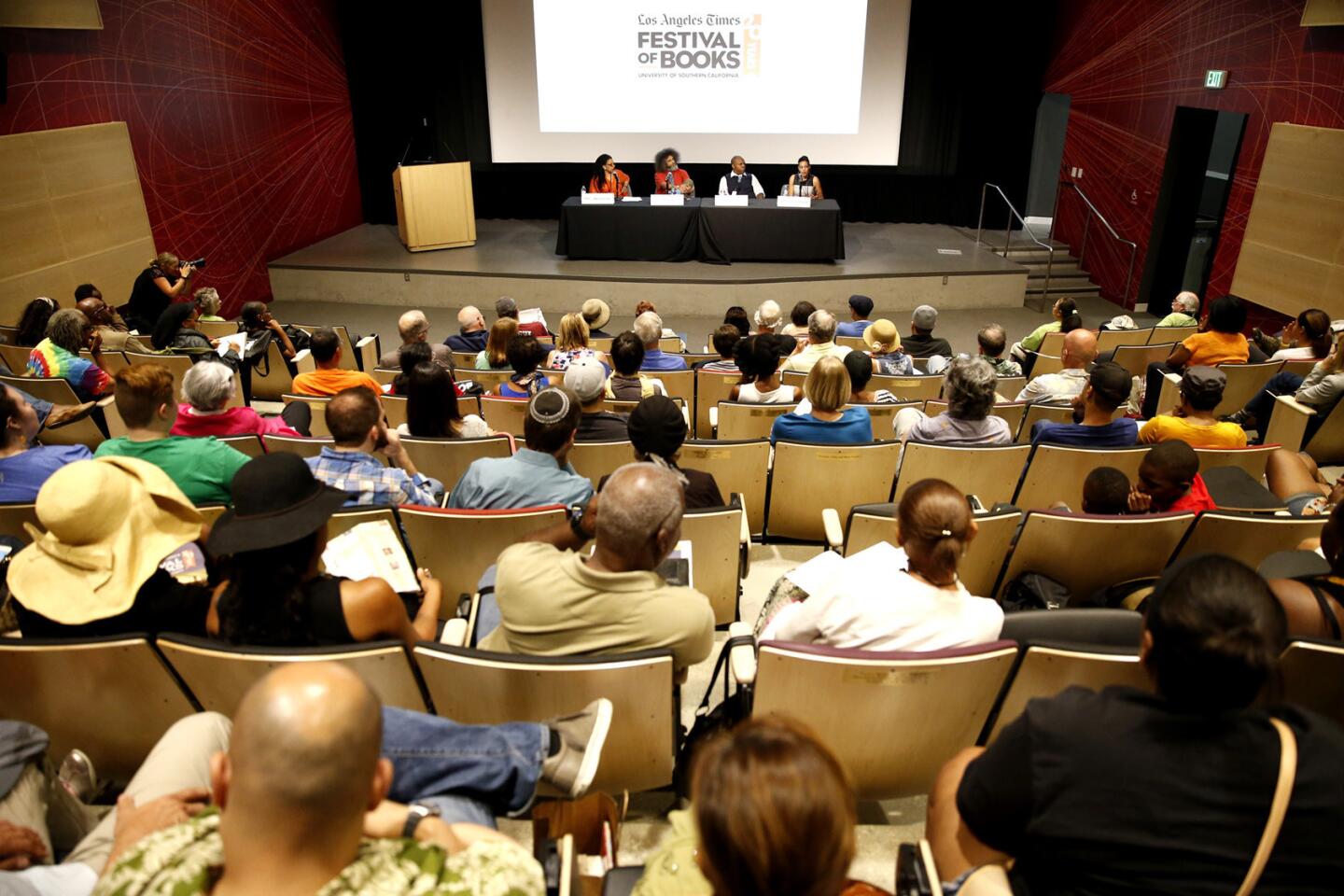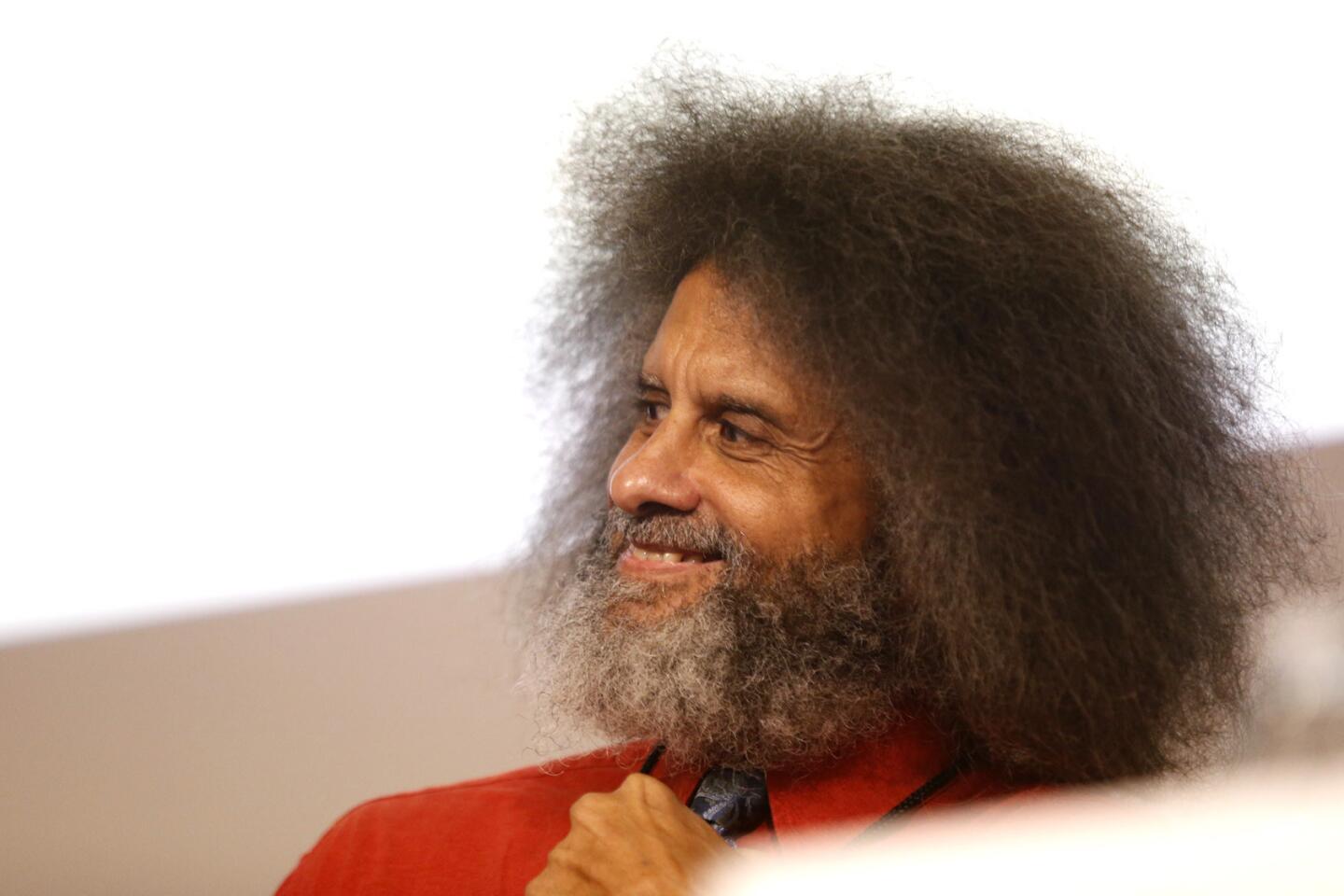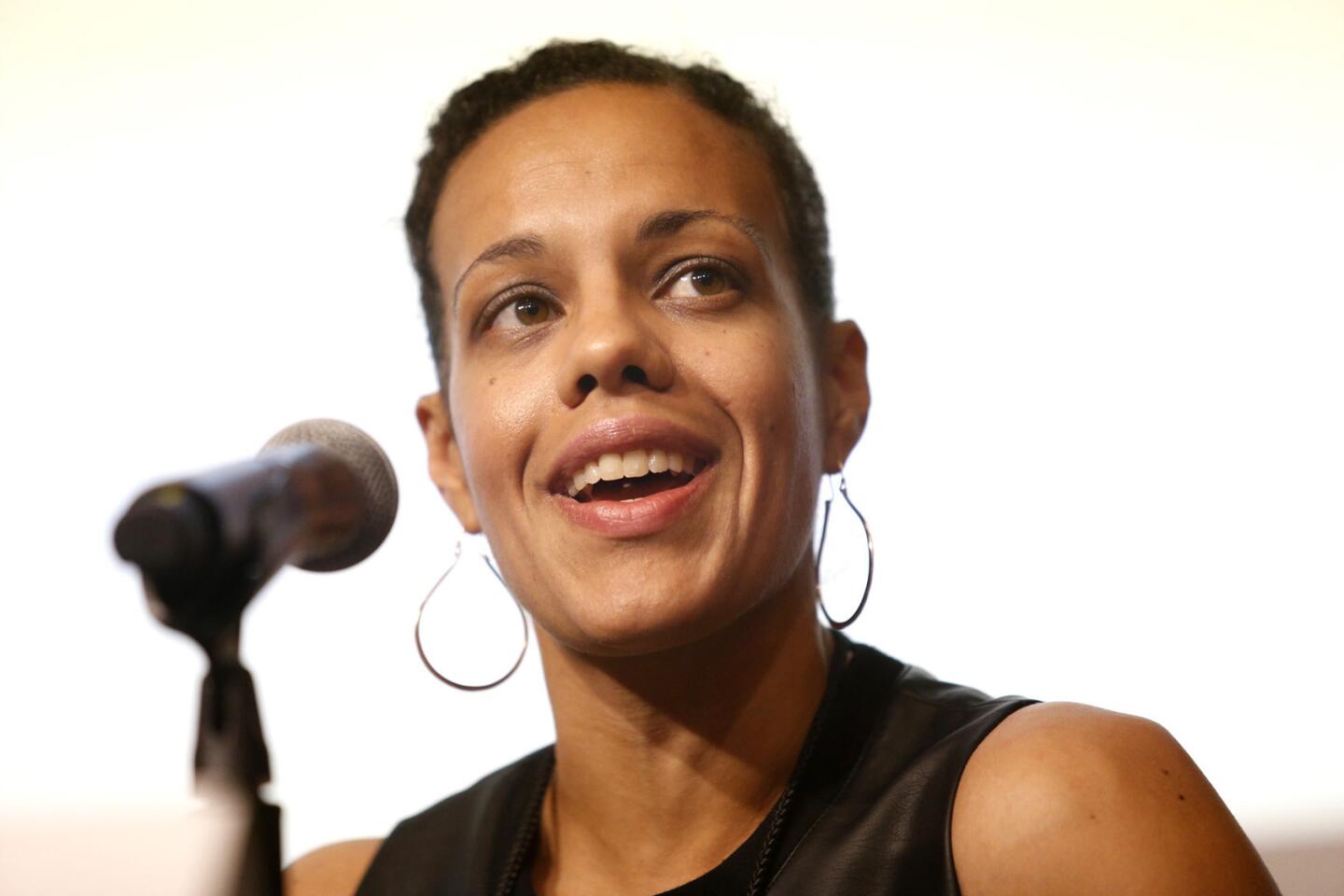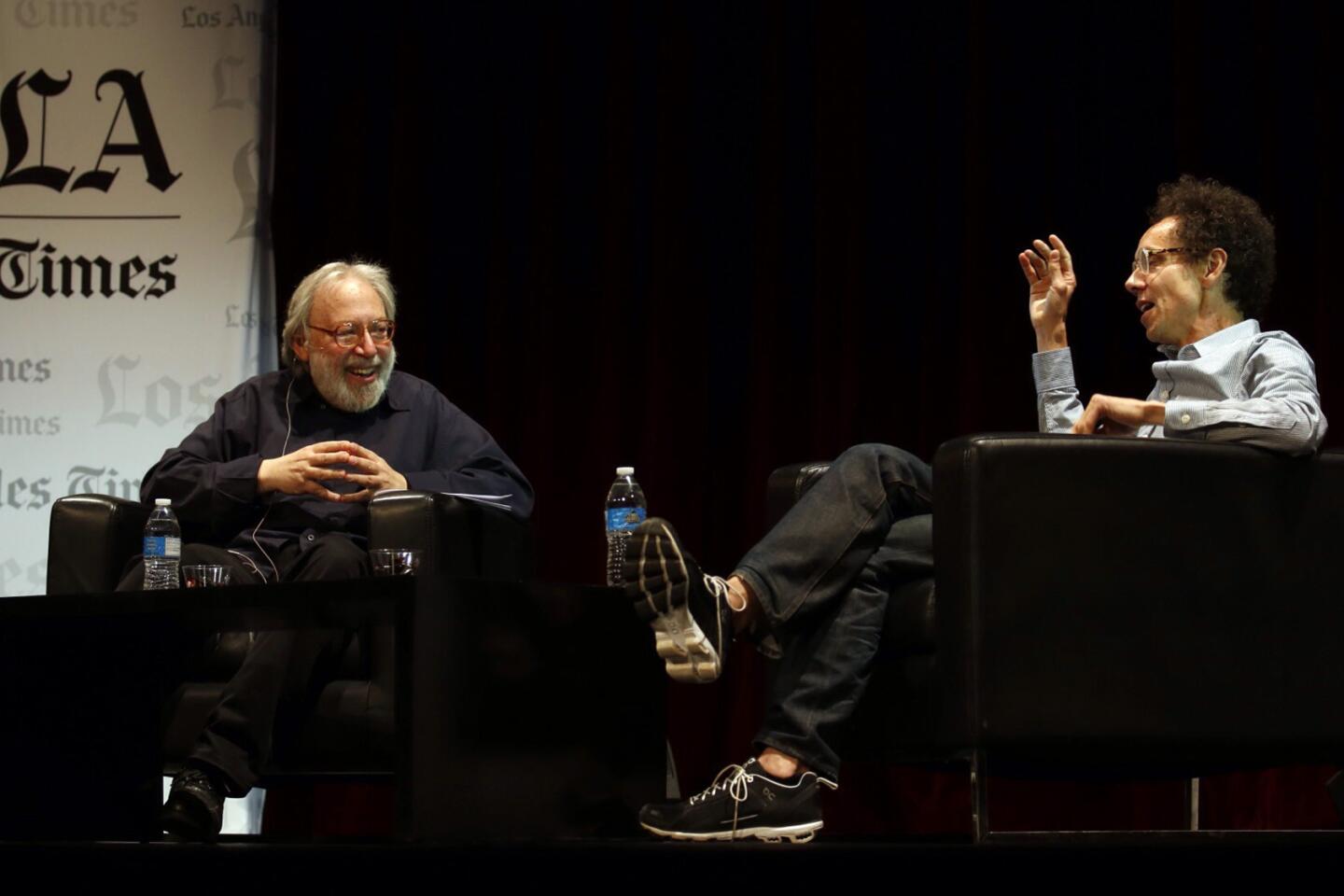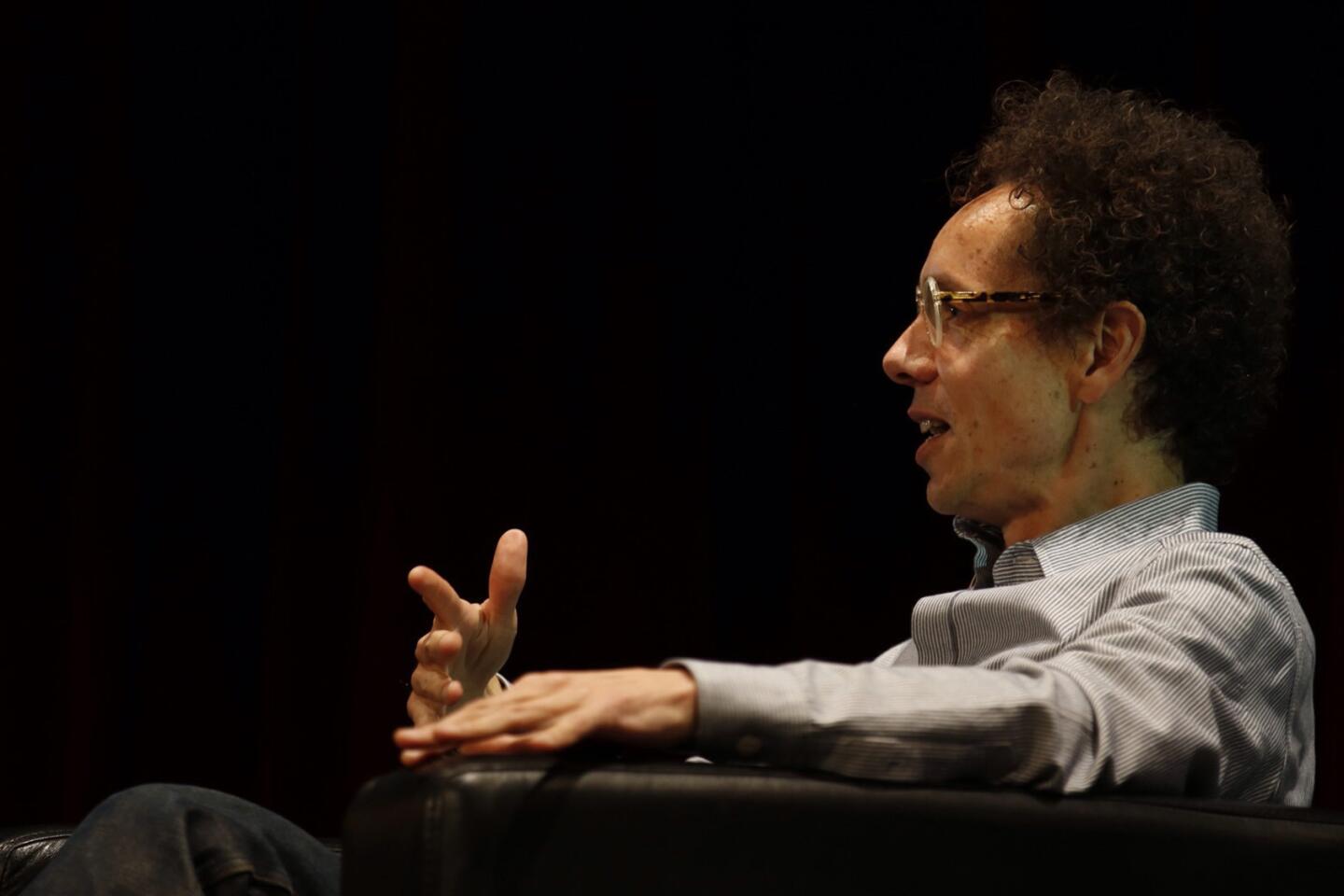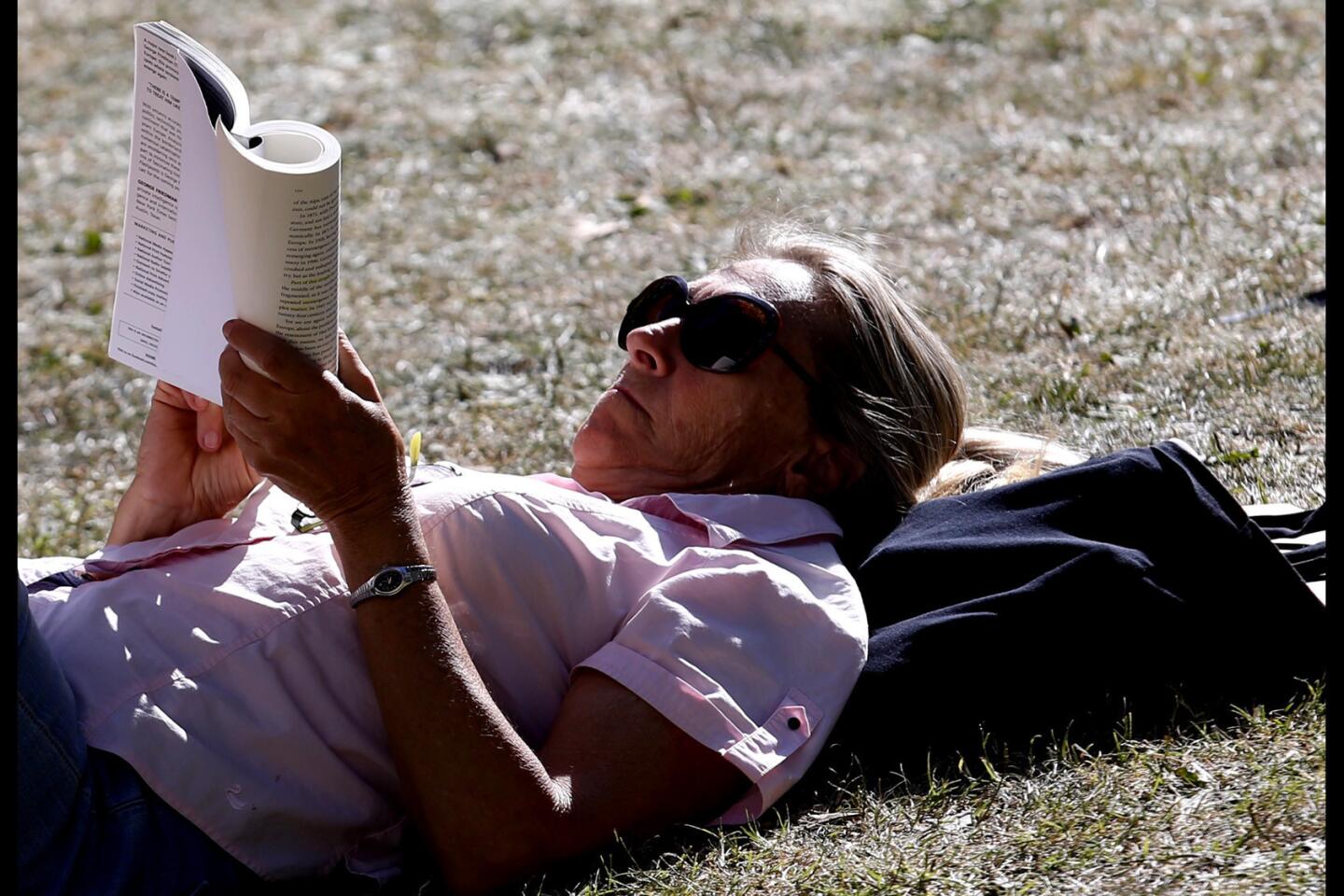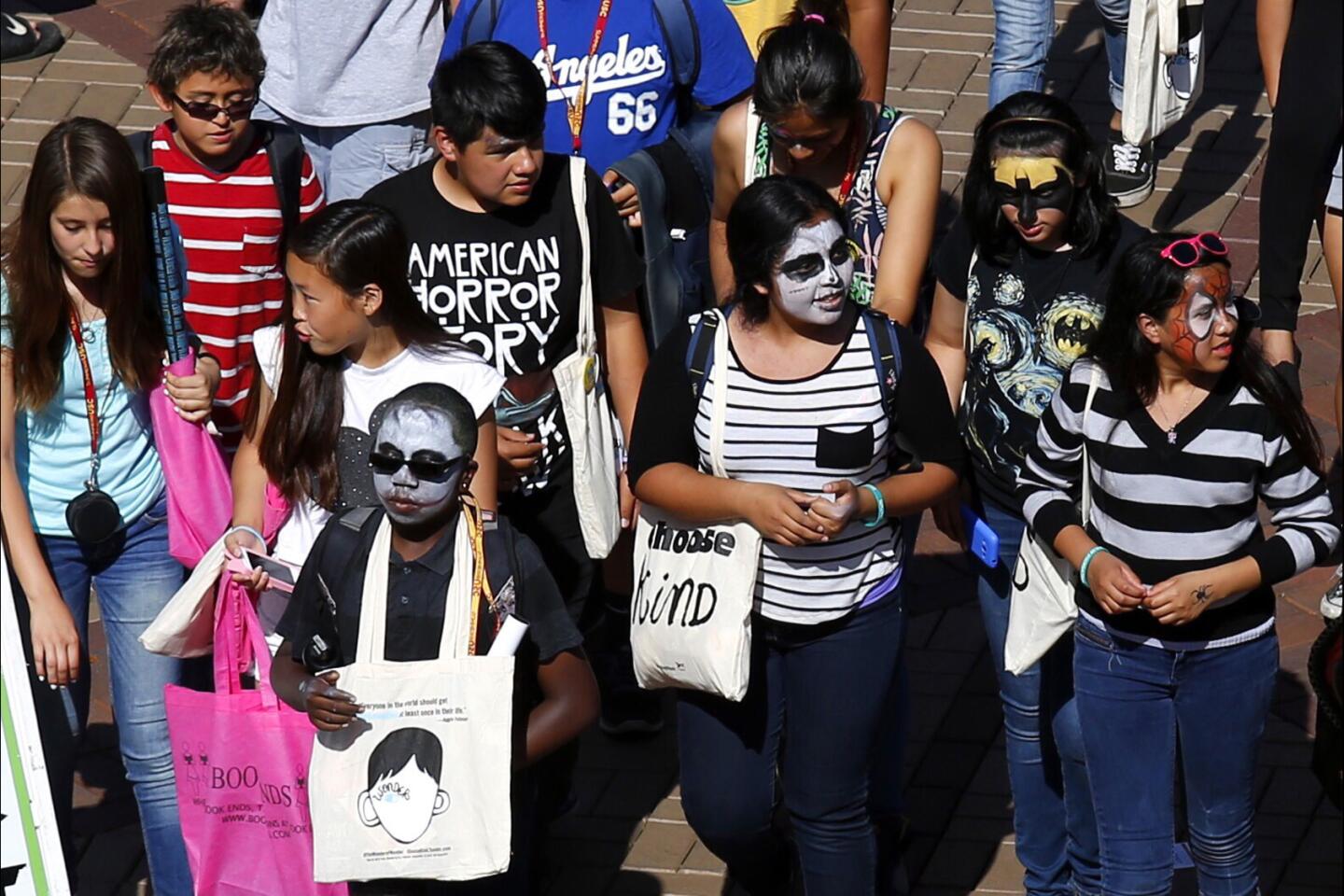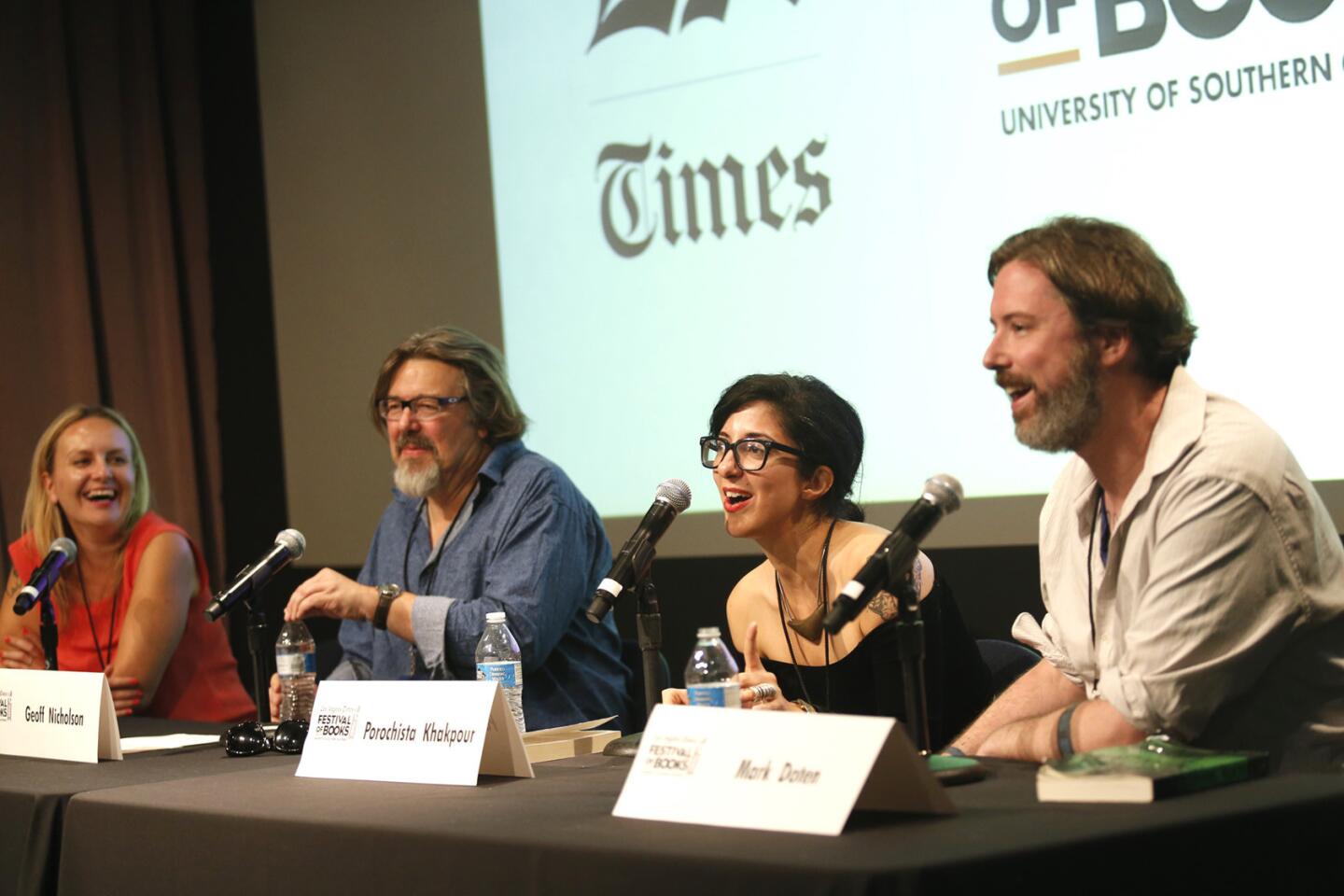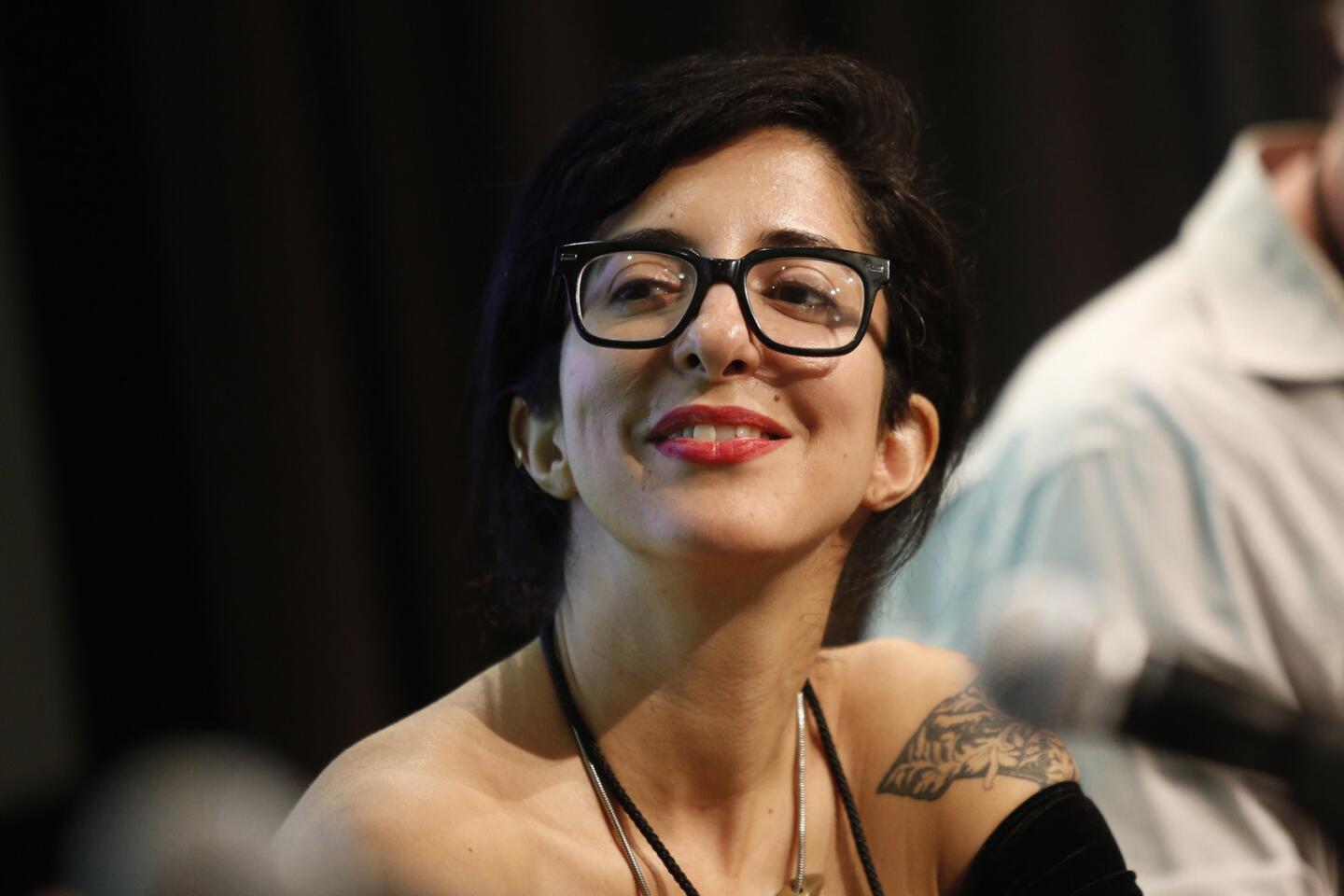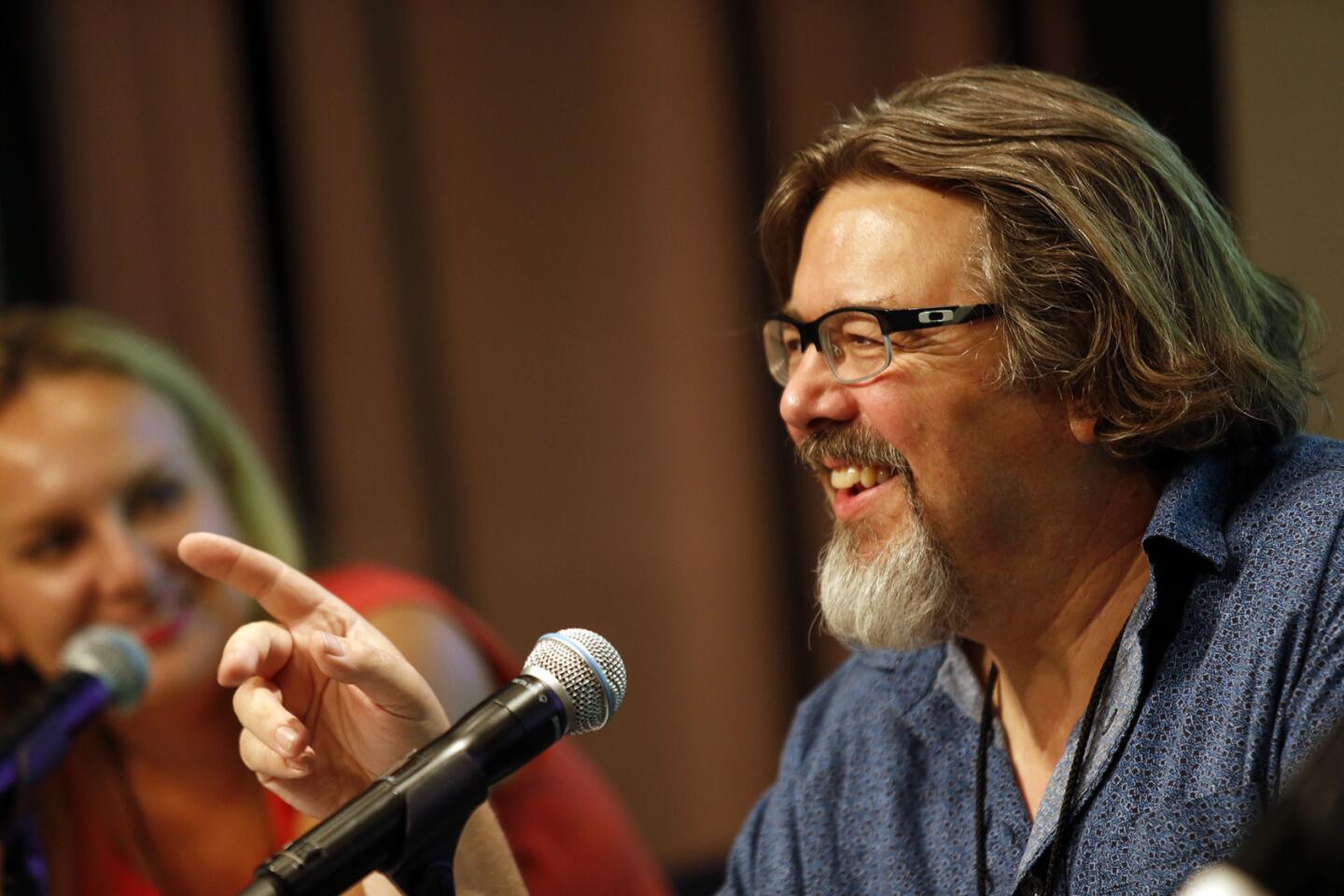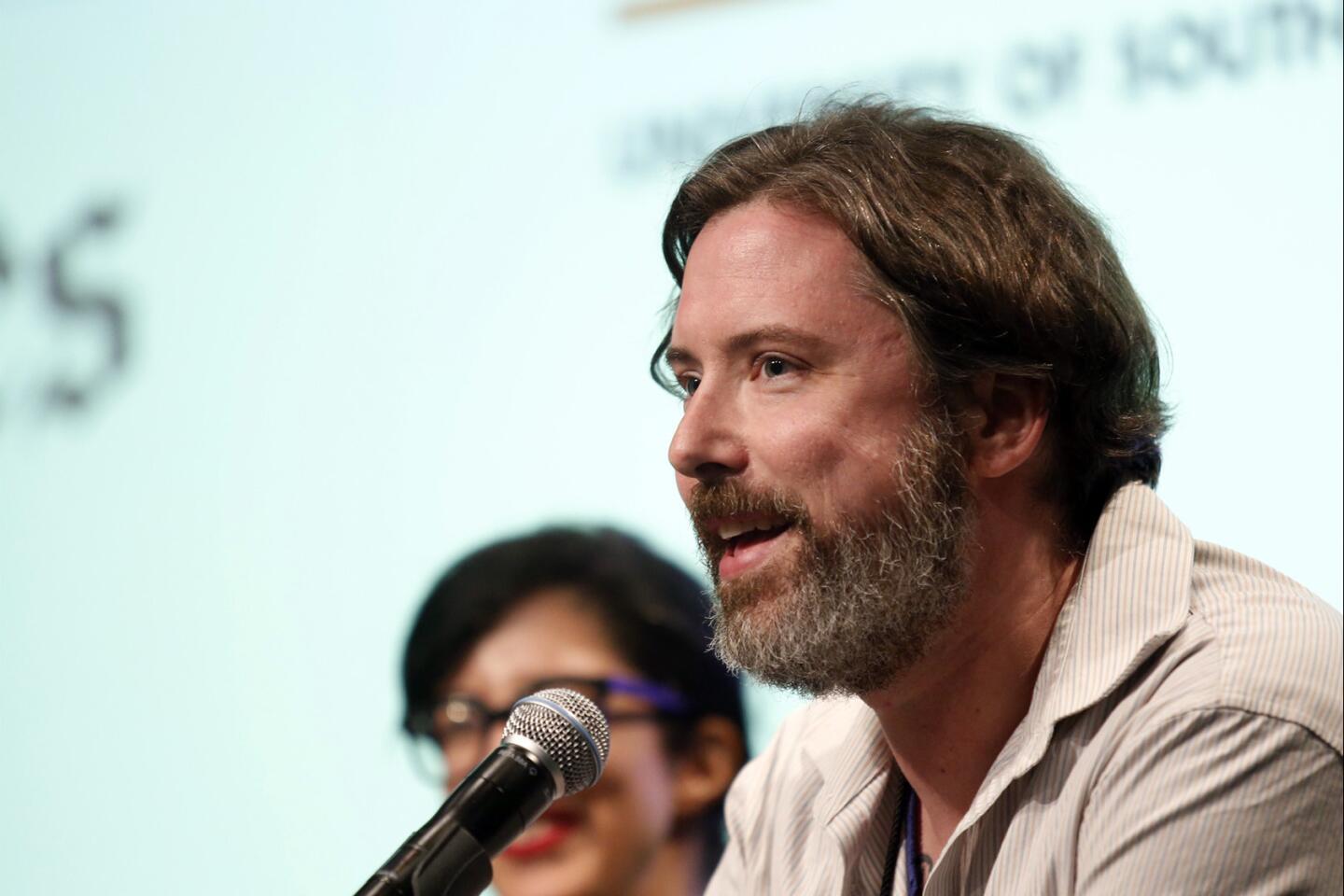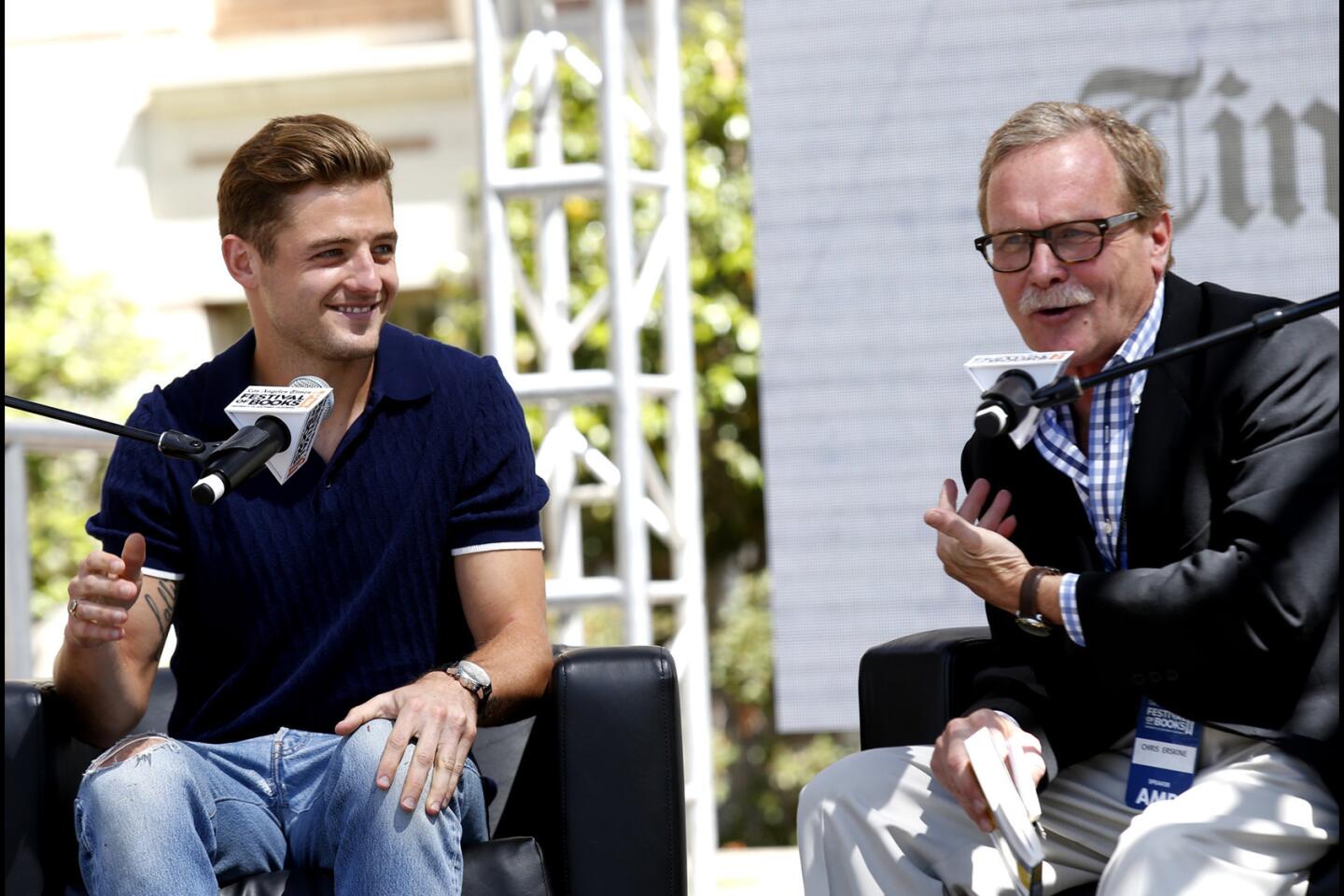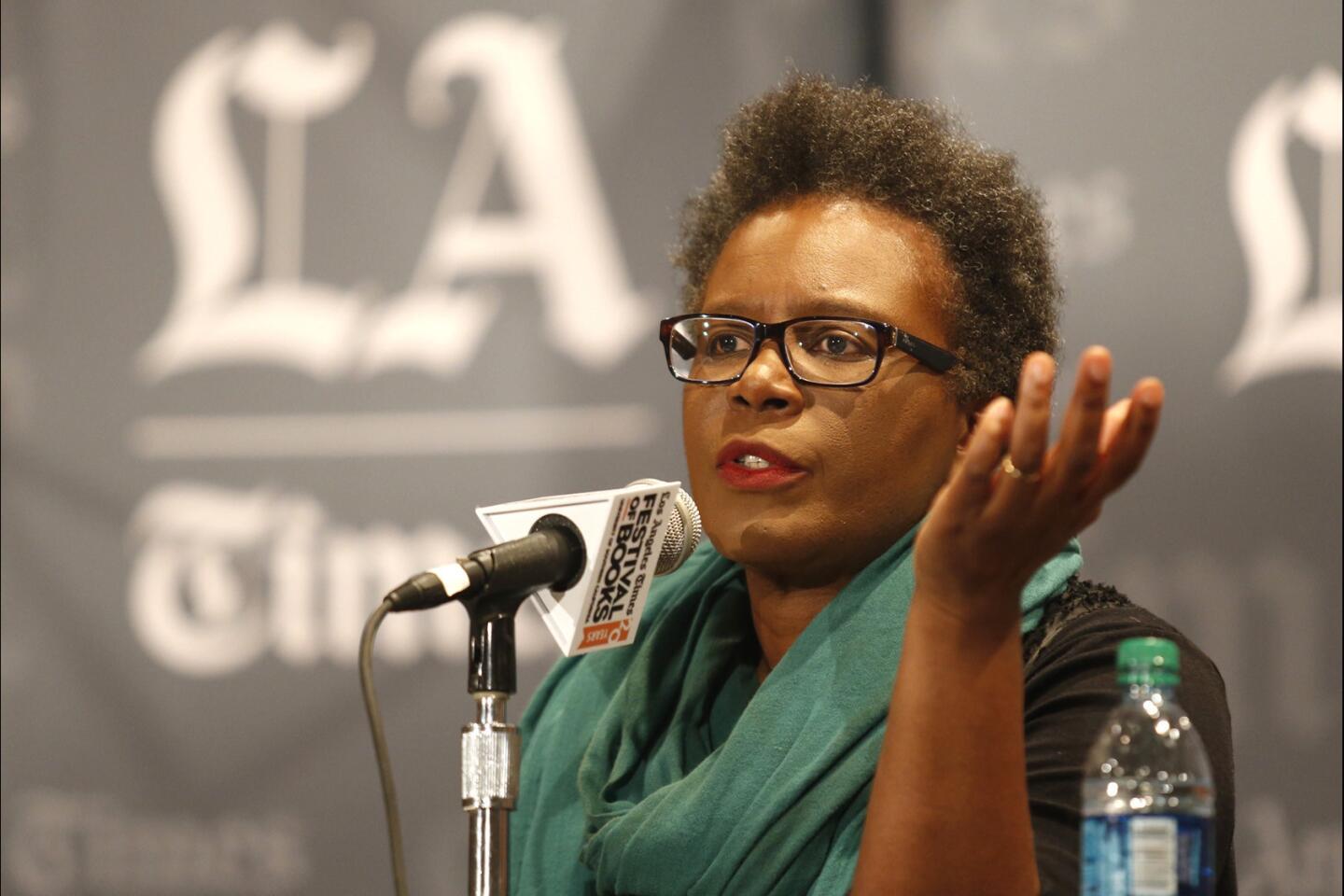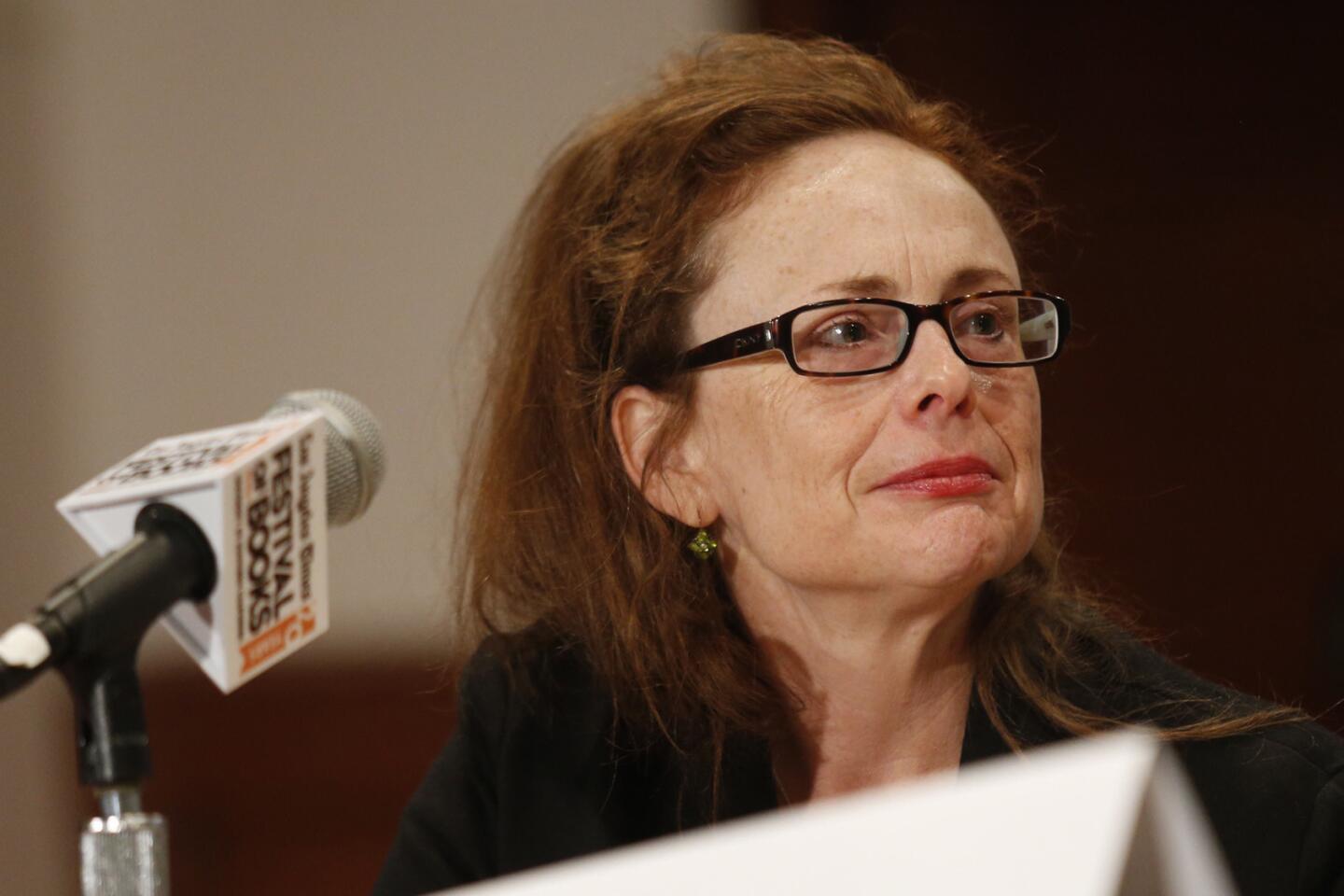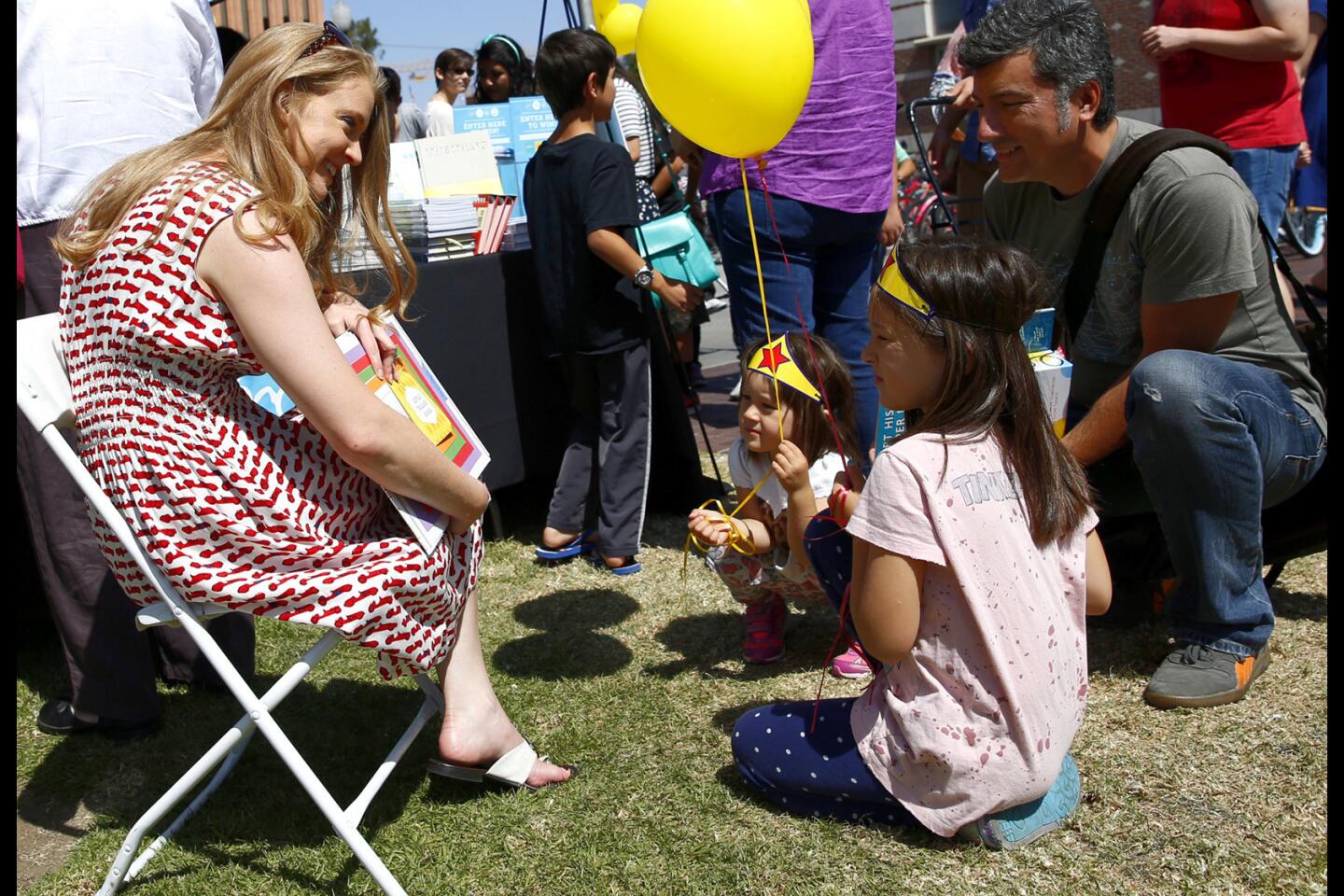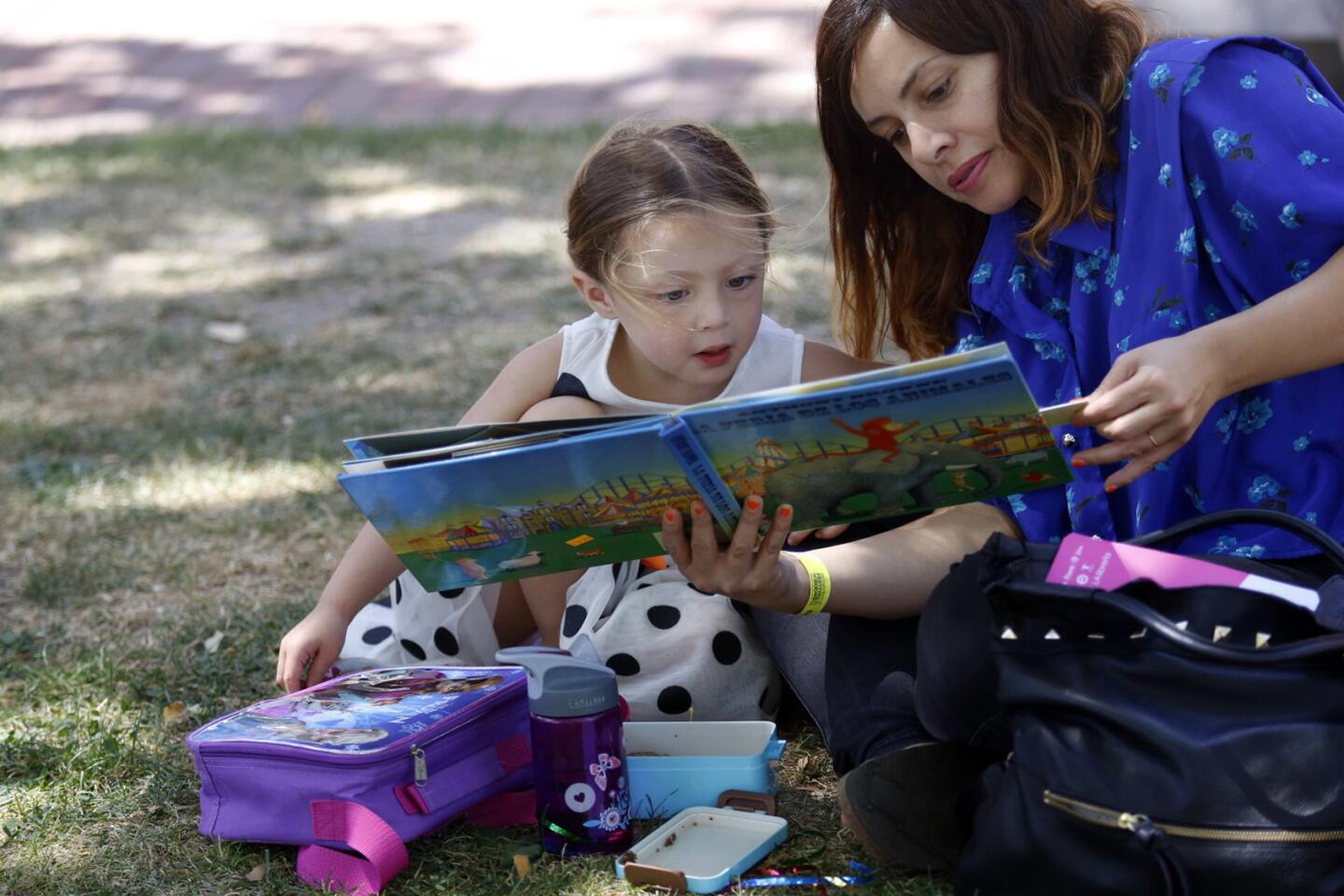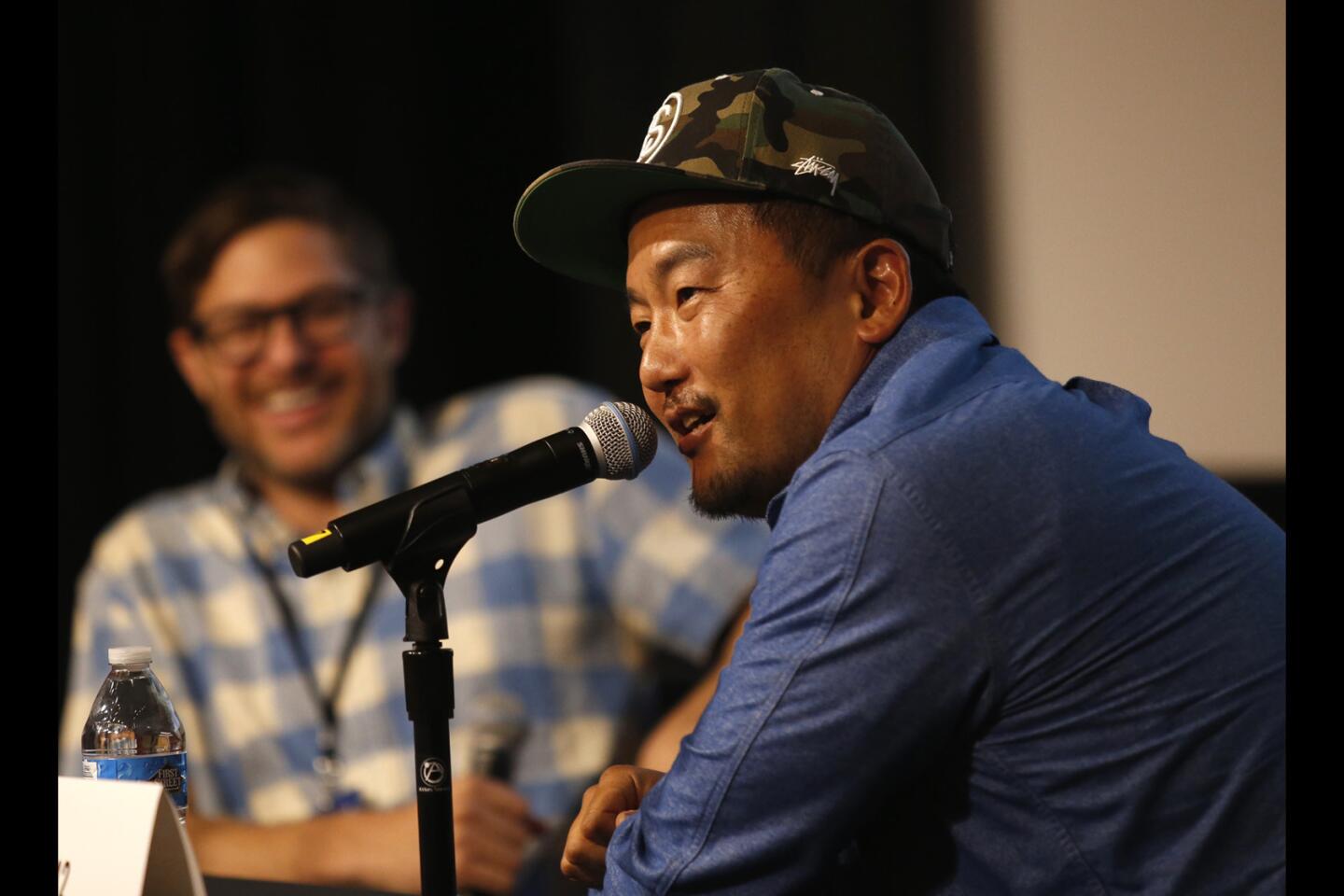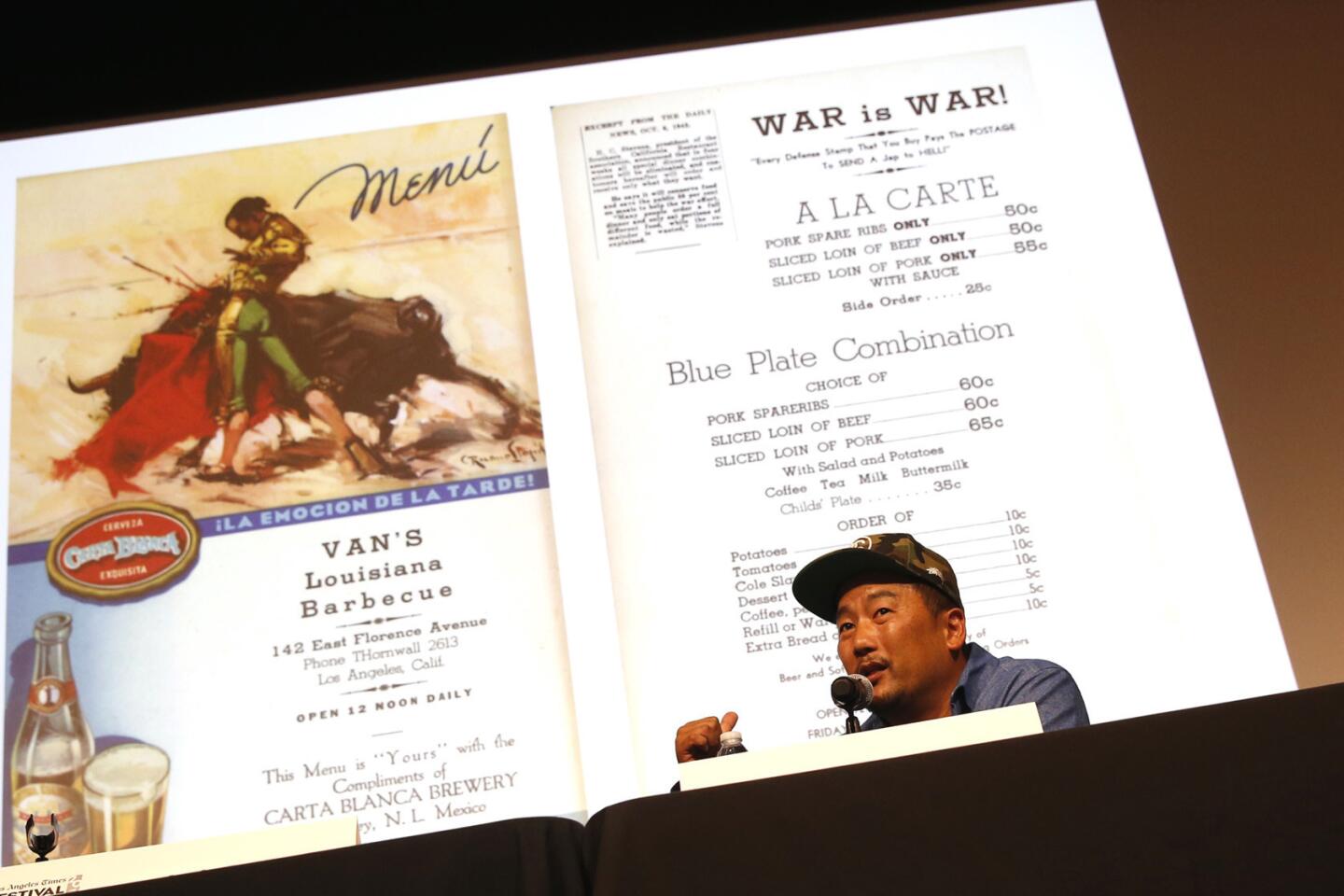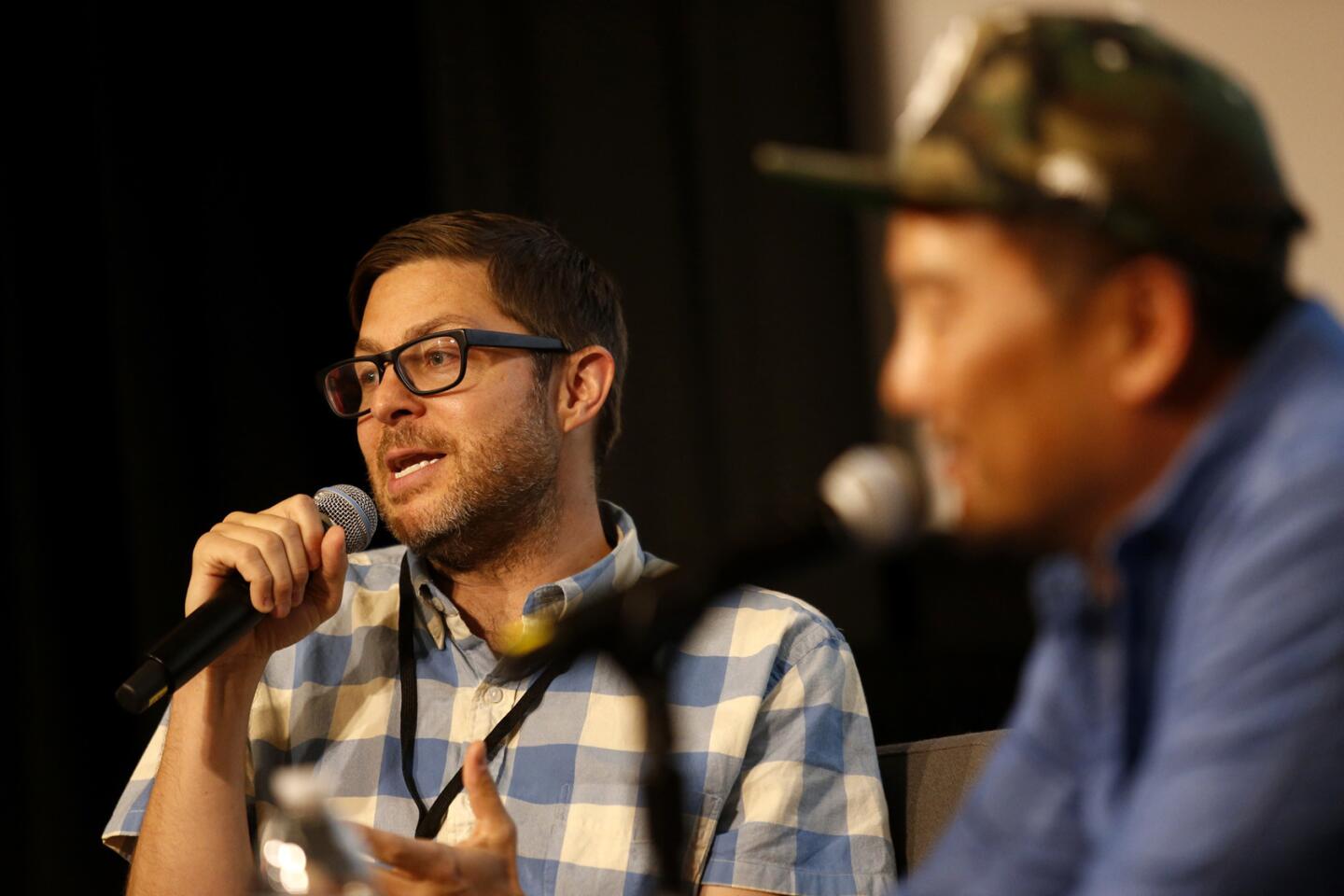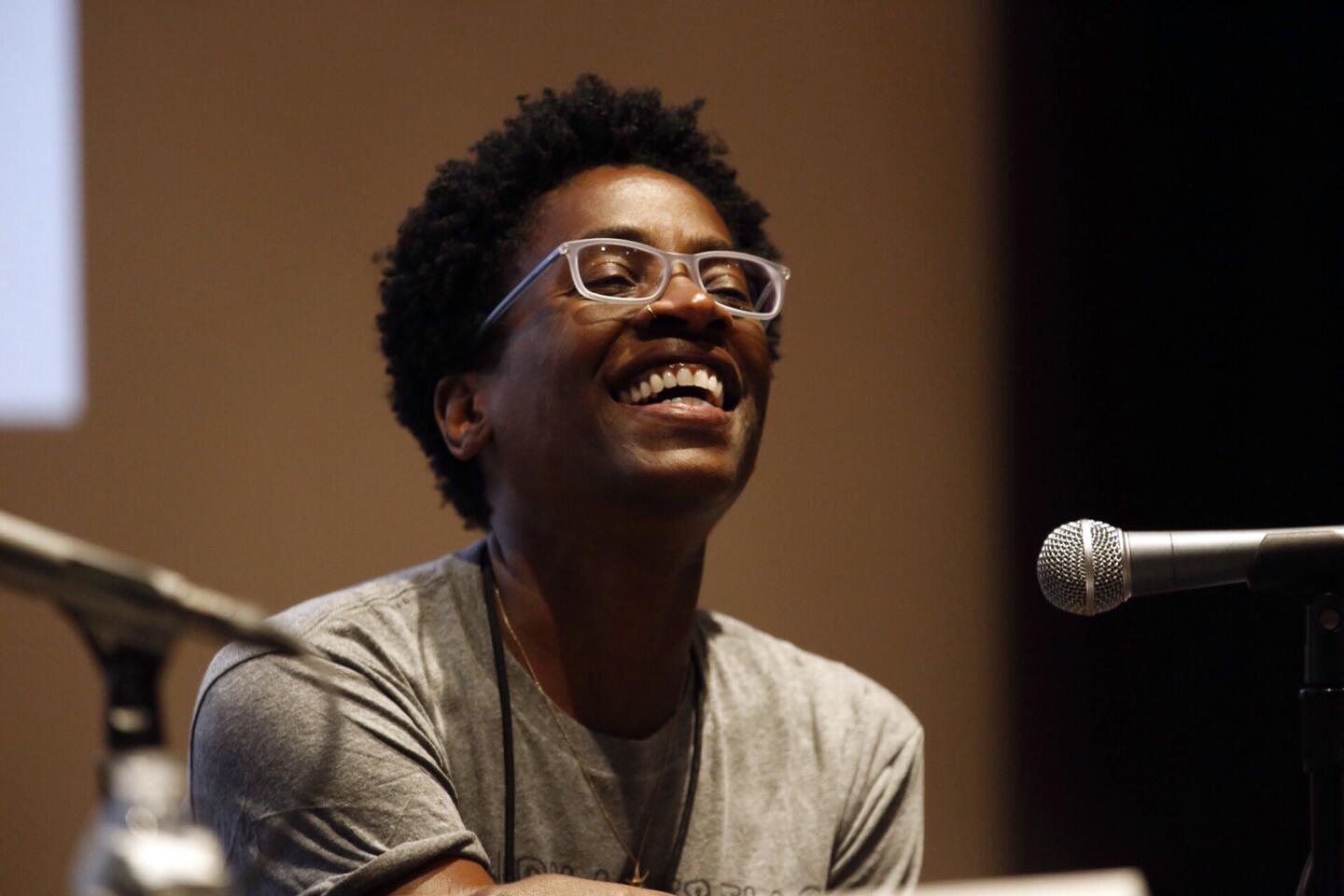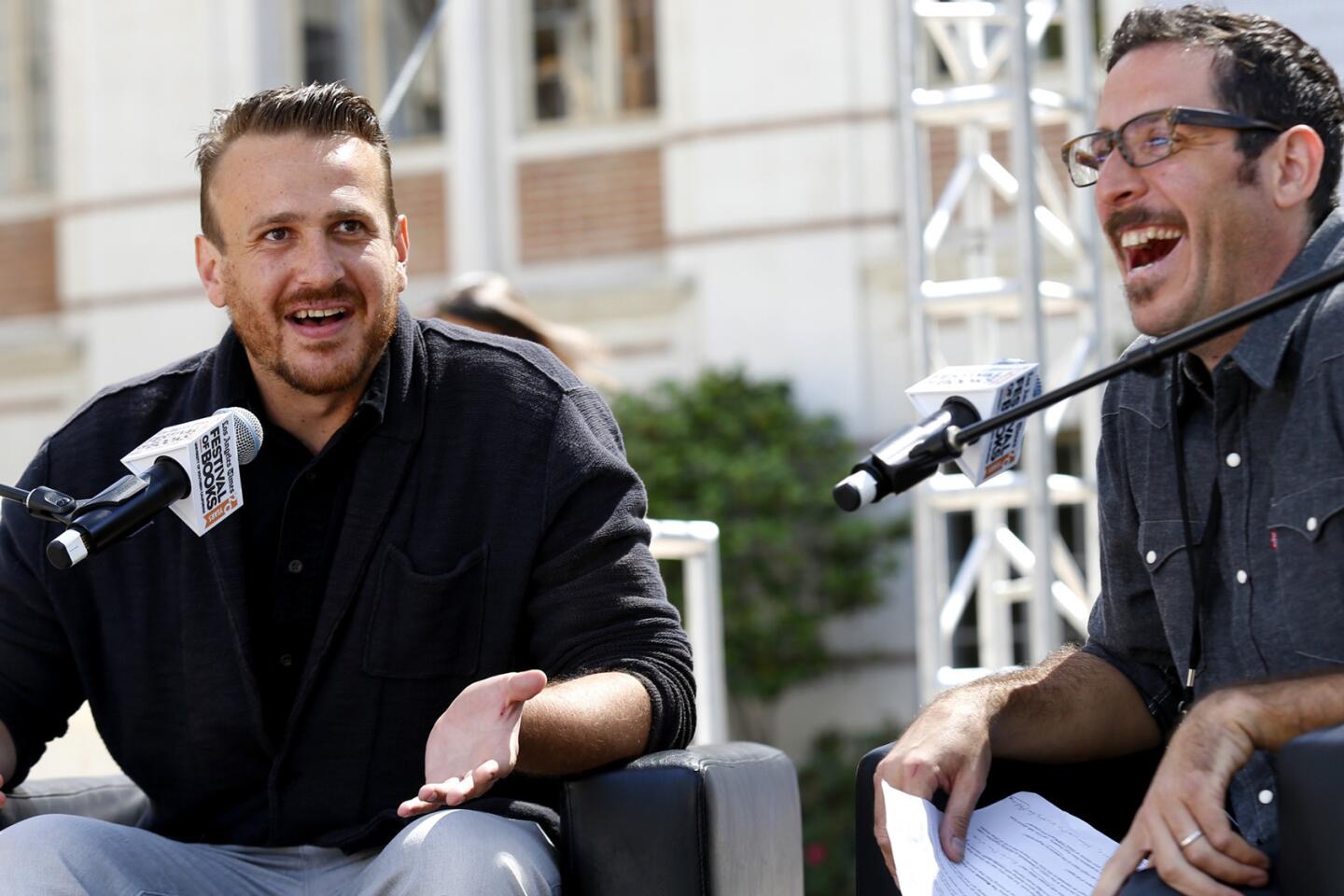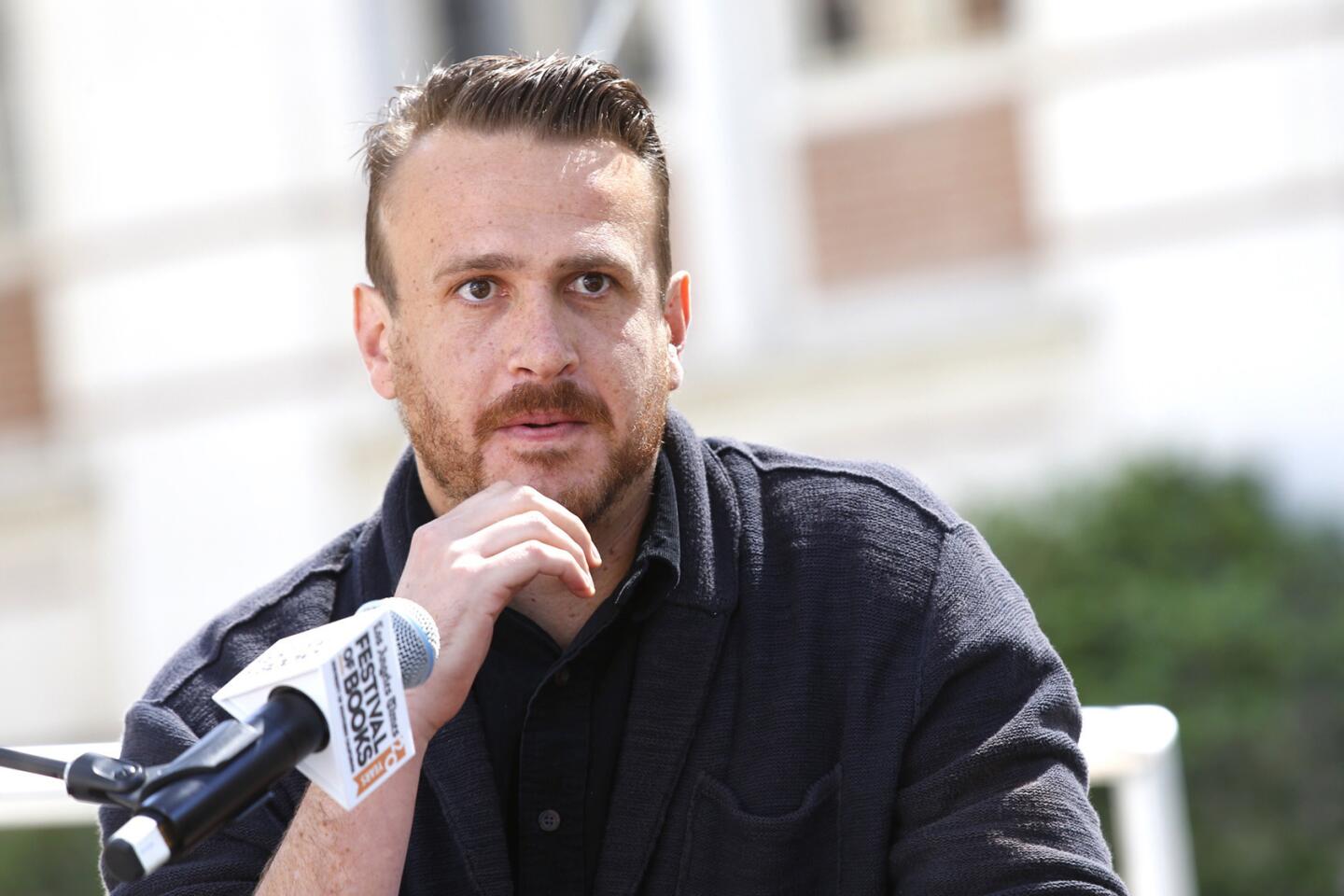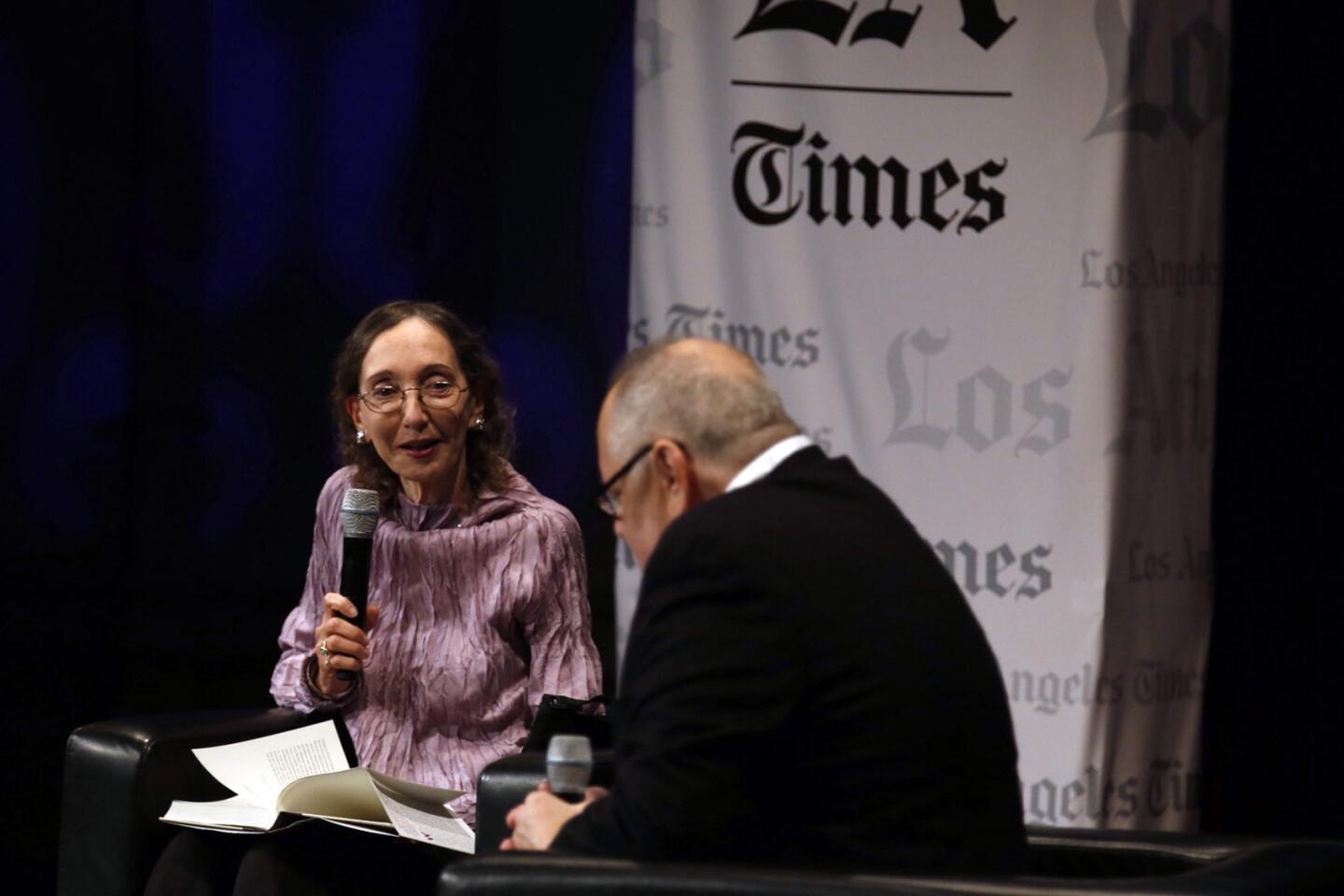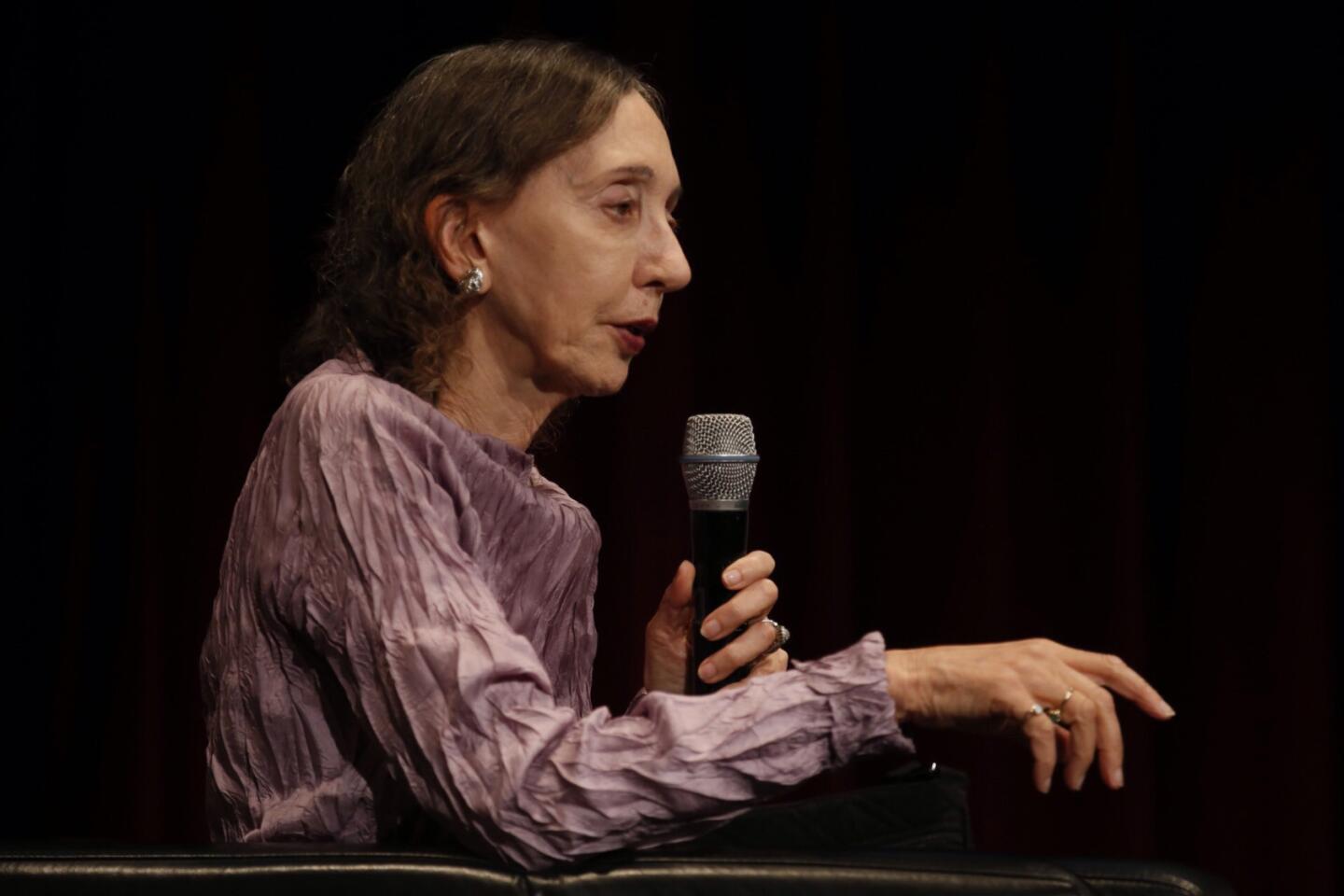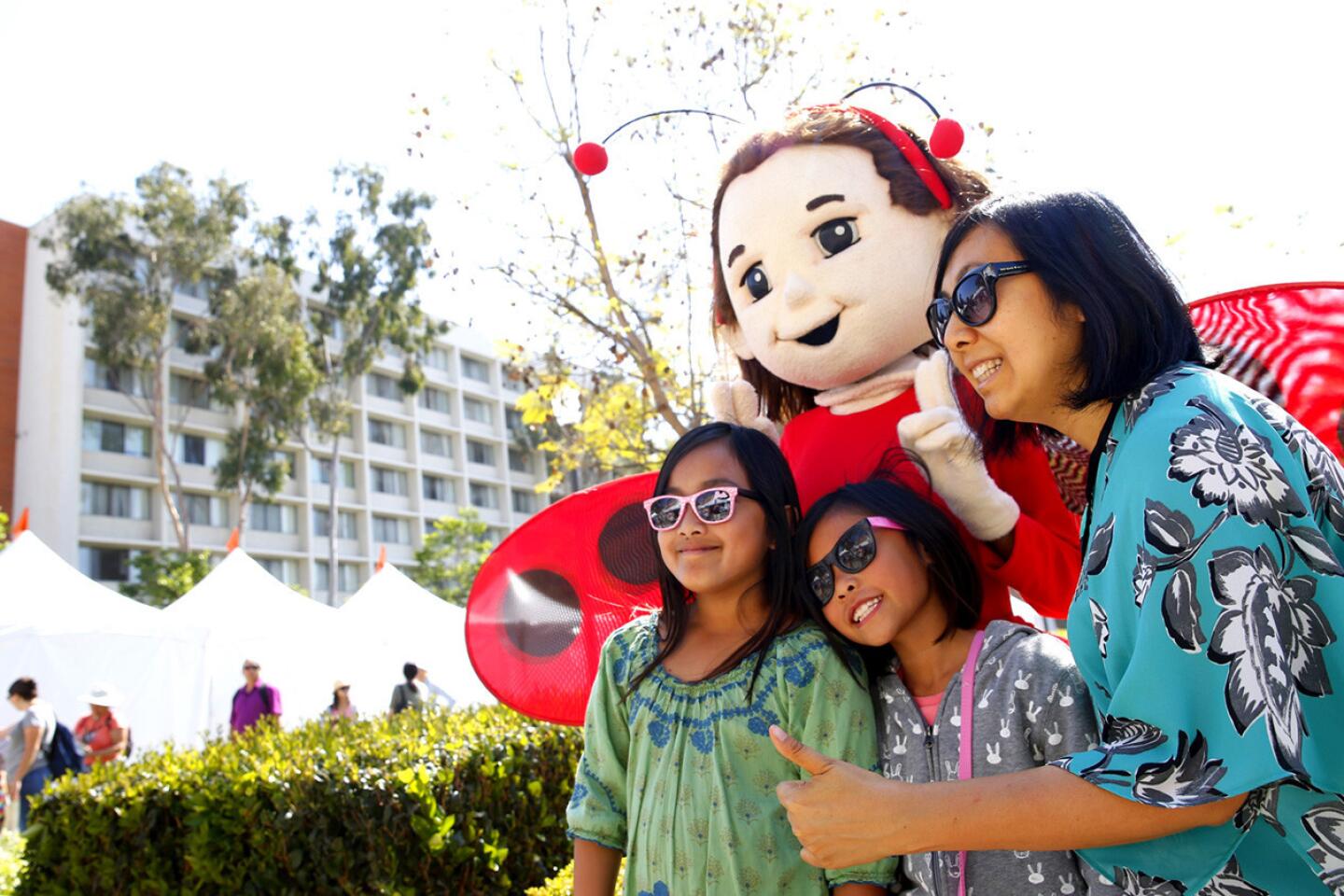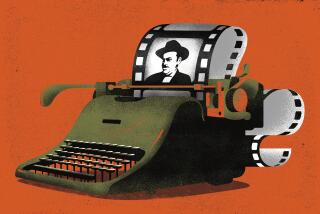Festival of Books: Why Claudia Rankine’s book on racism has no ending
“She would rather stand all the way to Union Station,” said Claudia Rankine, reading a scene from hew new book, “Citizen: An American Lyric,” in which a presumably white woman chooses not to take the seat beside an African American man.
“The man knows more about the unoccupied seat than you do. / He’s gazing out the window into what looks like darkness.”
It’s this darkness and the space between white and non-white bodies that make up what book critic Dan Chiasson calls “part documentary, part lyric procedural, submitting to its painstaking frame-by-frame analysis everything from J.M.W. Turner’s painting ‘The Slave Ship’ to Zinedine Zidane’s head-butt during the 2006 World Cup final.”
FULL COVERAGE: FESTIVAL OF BOOKS
“Citizen” opens with a long and punishing list of “micro-aggressions,” written in second person, in which Rankine says she’s retelling the stories she’s collected about racism experienced by friends and colleagues.
There’s also an extended lyric essay about tennis player Serena Williams, and the entire text is studded by alluring images, including the infamous Turner painting of a slave ship dumping its human cargo.
It’s an exhilarating and damning formula that has positioned Rankine — who appeared onstage Sunday at the Los Angeles Times Festival of Books with Brighde Mullins, herself a playwright, poet and professor at USC’s Master of Professional Writing Program — at the center of America’s current desire, Mullins said, “to see more deeply into itself.”
#LITIDOL: AUTHORS DISCUSS THEIR LITERARY IDOLS
As the news of clashes between police and citizens has, with regret, seemed to have moved in sync with the book’s growing success, “Citizen’s” final pages are renewed again. Mostly white space, the pages actually list the names of African American men killed by police — “Because white men can’t police their imagination, black men are dying,” Rankine writes.
Now in its sixth printing, the list at the end of “Citizen” keeps growing.
So are Rankine’s accolades.
The Pomona College professor, attending the 35th annual Los Angeles Times Book Prizes on Saturday night, saw her book take the poetry award.
She also had the unusual honor of being the first author nominated for a National Book Critics Circle Award in two categories — in her case, both criticism and poetry, the latter of which she won.
Did her success offset these new stories of death, or the pain of those updated final pages? Did the poet feel at all good about concluding, to the degree she has, such a personal and ultimately award-winning volume?
“I don’t know how to end that which doesn’t have an ending.”
Check out the Festival of Books schedule for this weekend.
MORE FROM THE FESTIVAL OF BOOKS:
A look inside Brian Grazer’s ‘Curious Mind’
Legal cases drive these stories of social injustice
Science writers debate -- Is there a morality gene?
Follow the books section on Twitter @latimesbooks and Facebook
More to Read
Sign up for our Book Club newsletter
Get the latest news, events and more from the Los Angeles Times Book Club, and help us get L.A. reading and talking.
You may occasionally receive promotional content from the Los Angeles Times.

